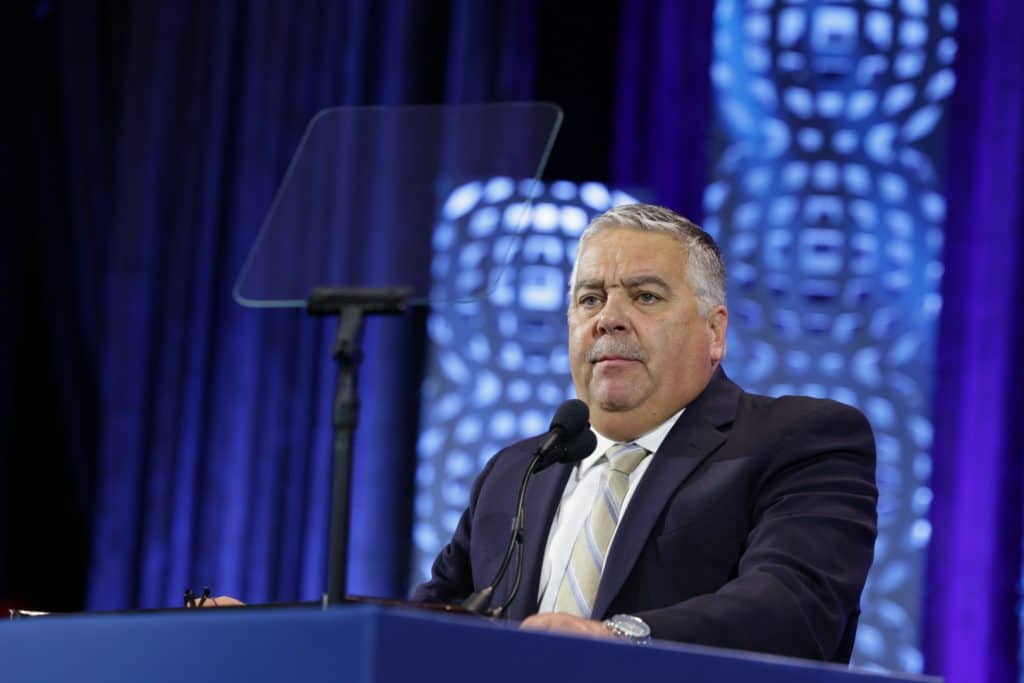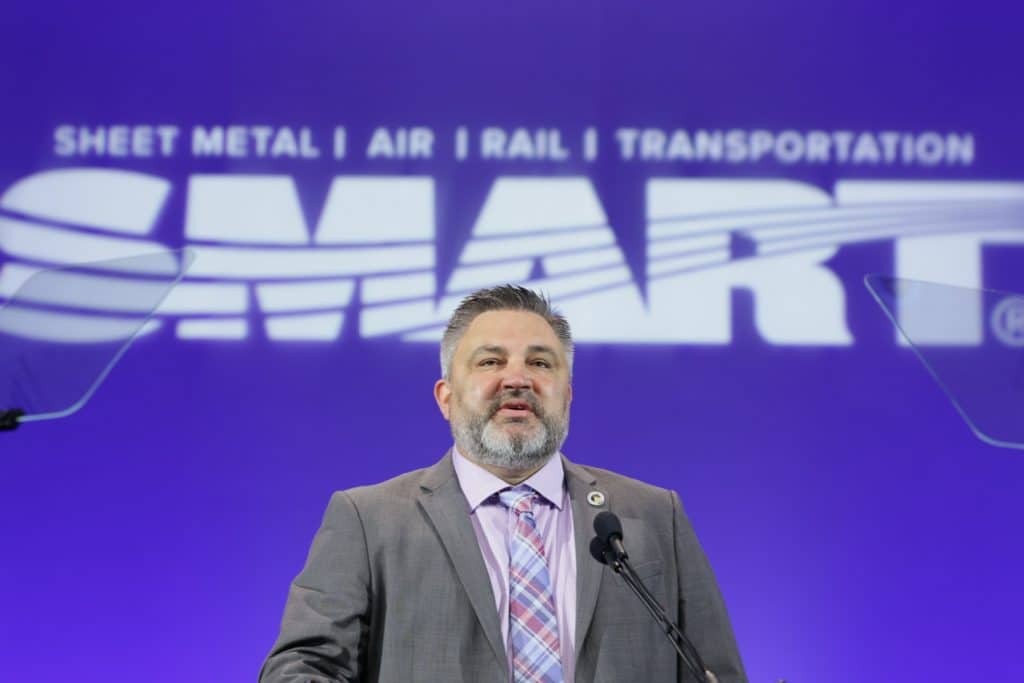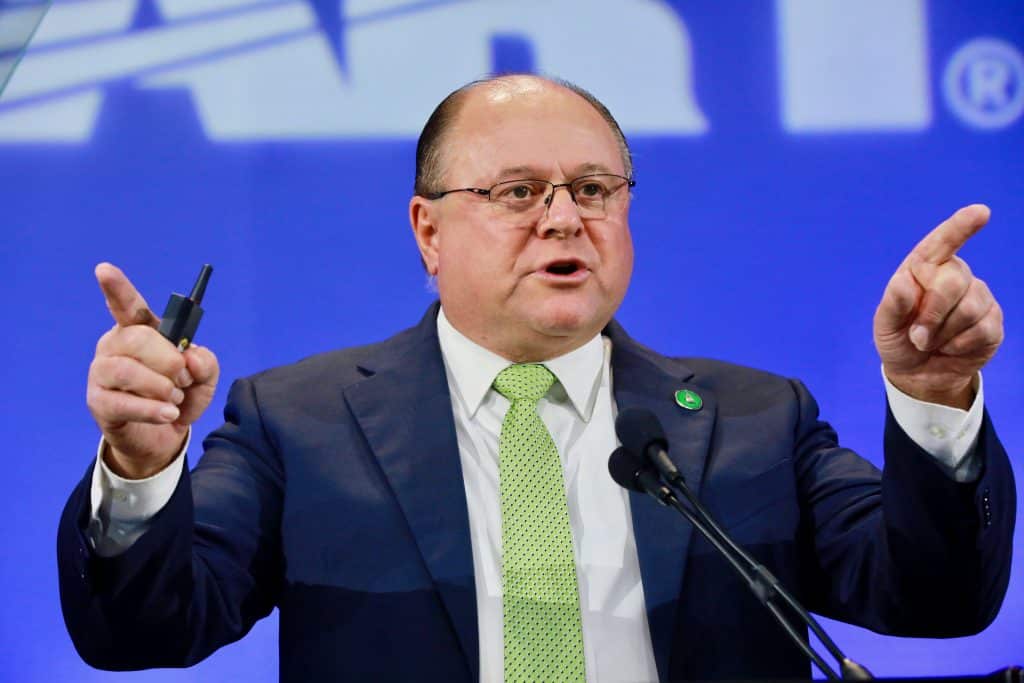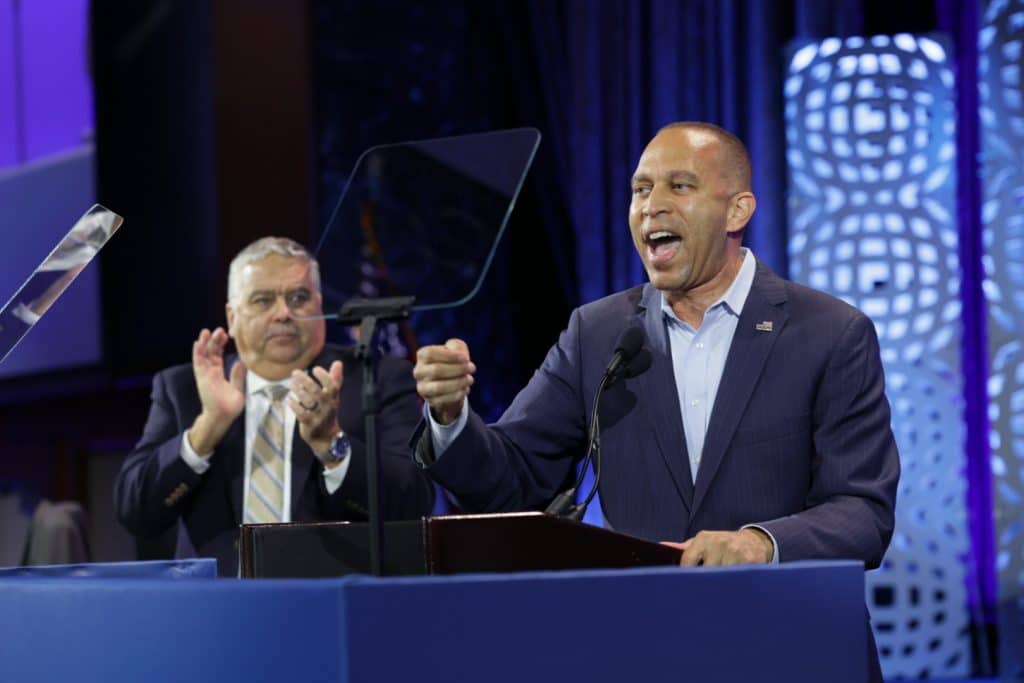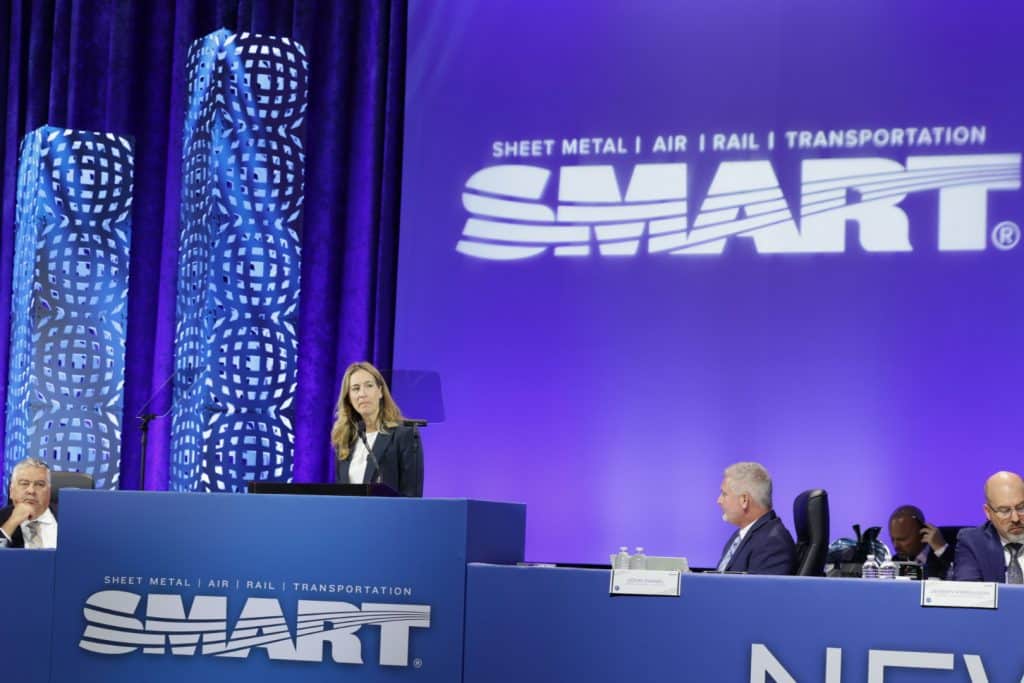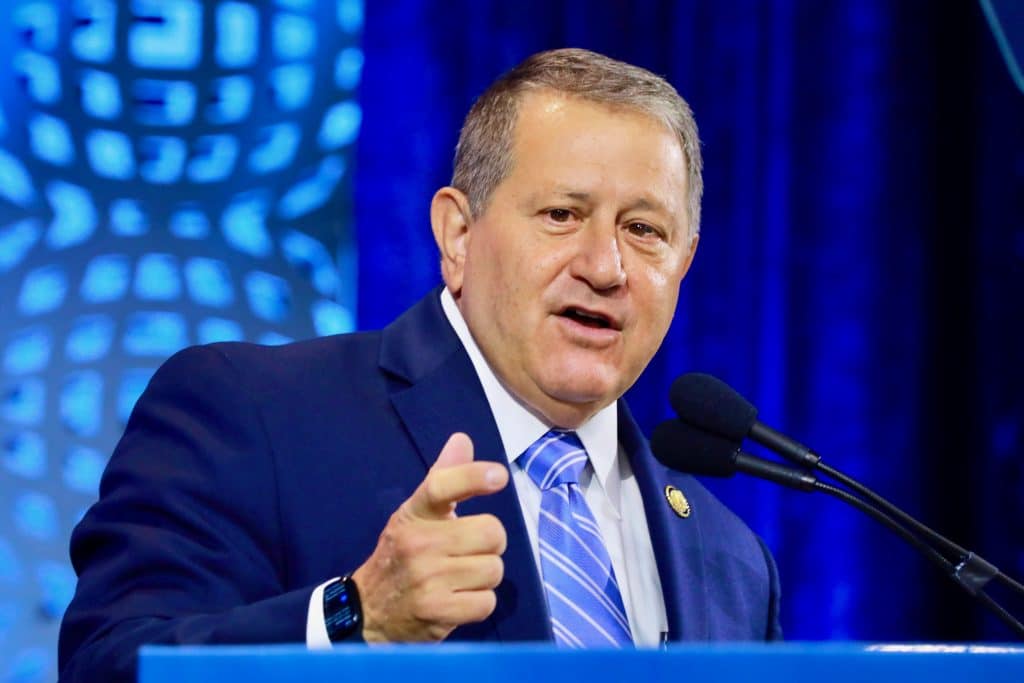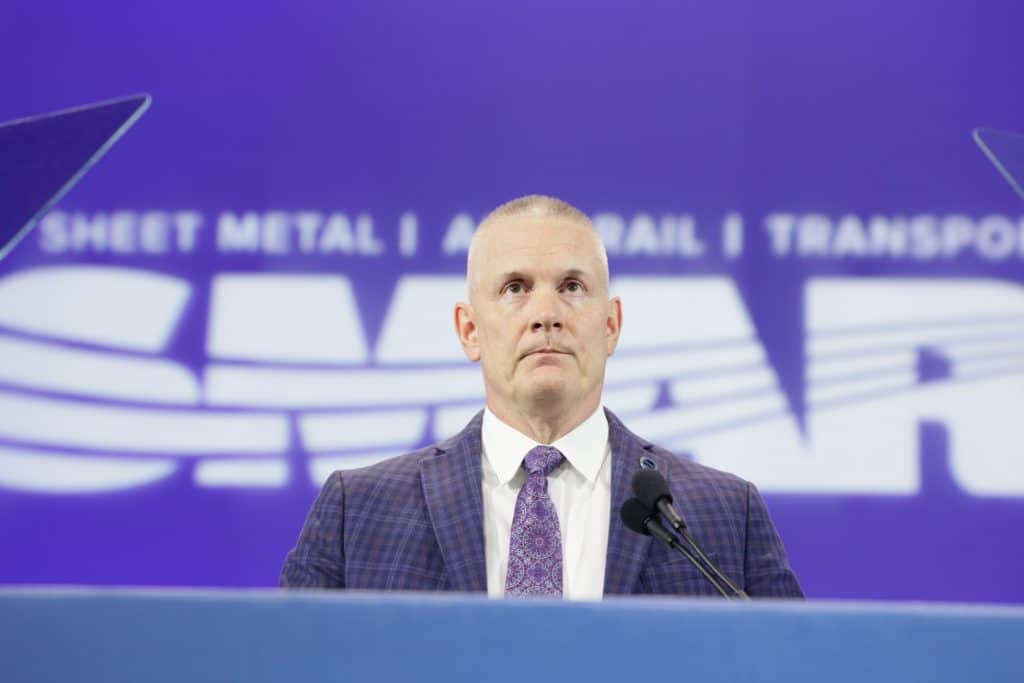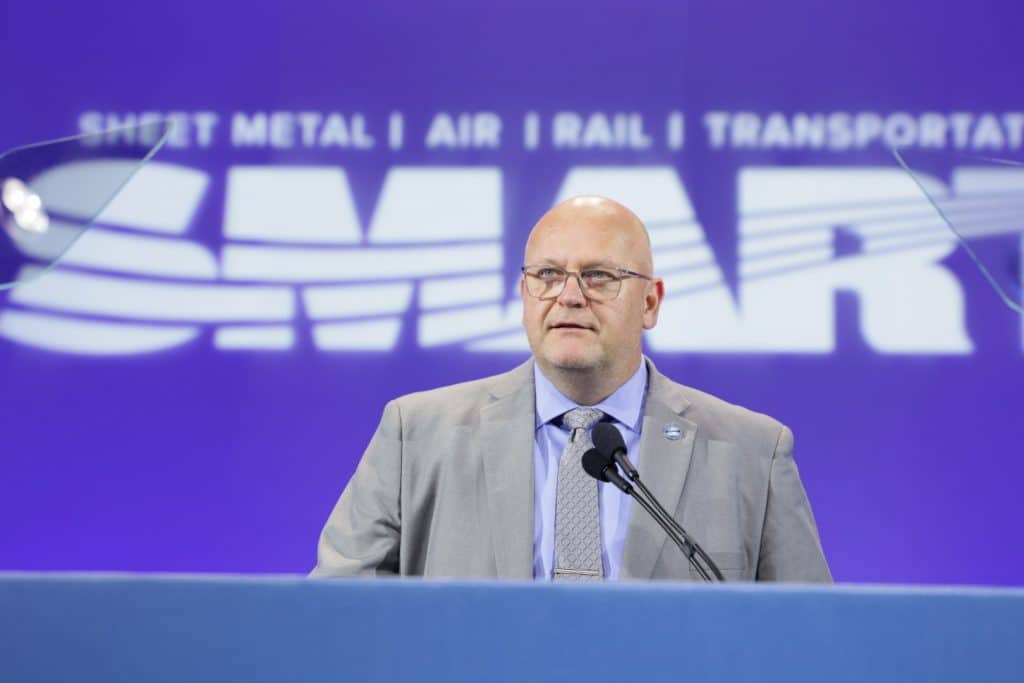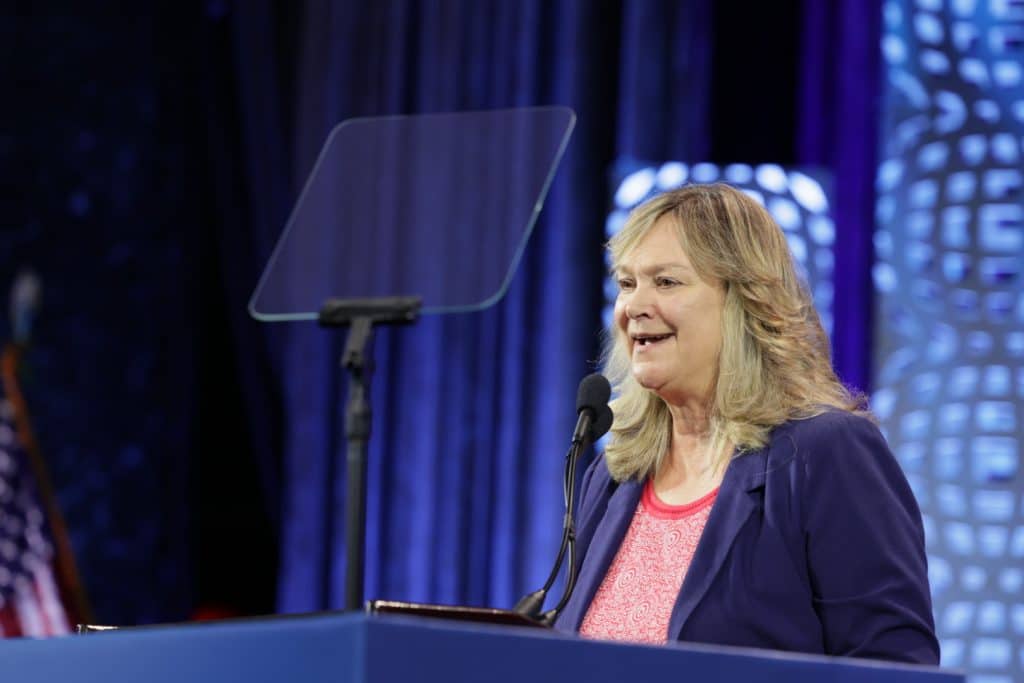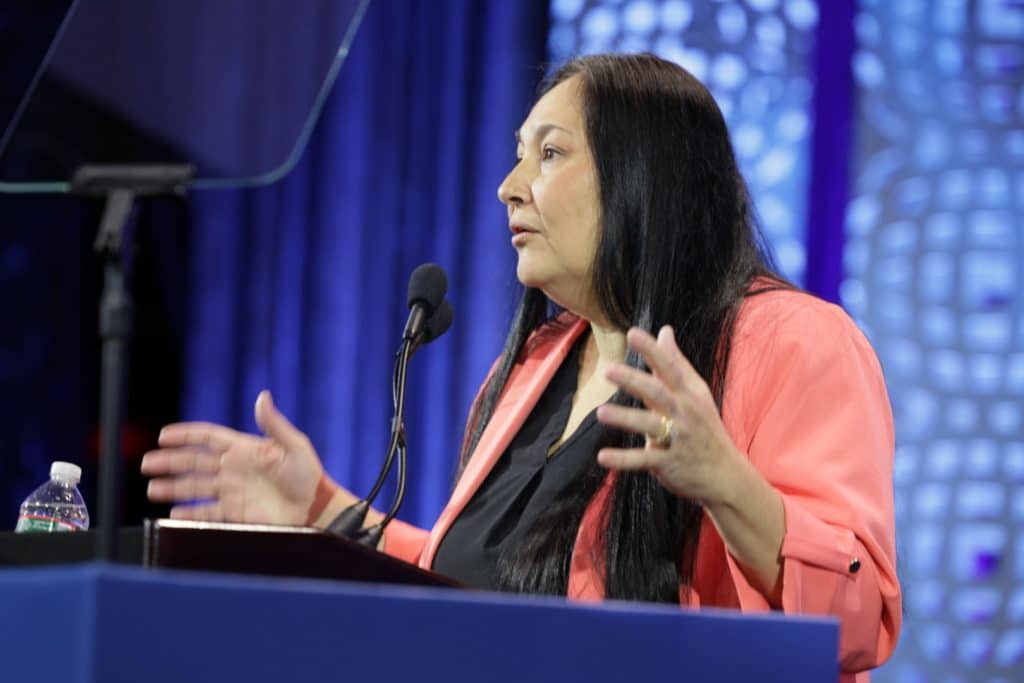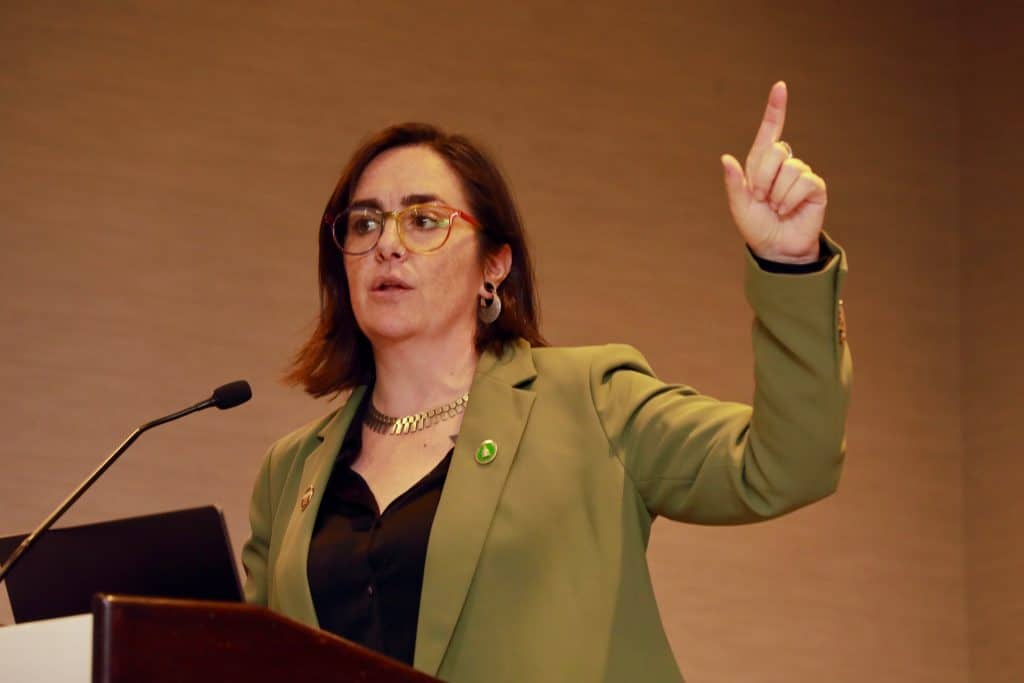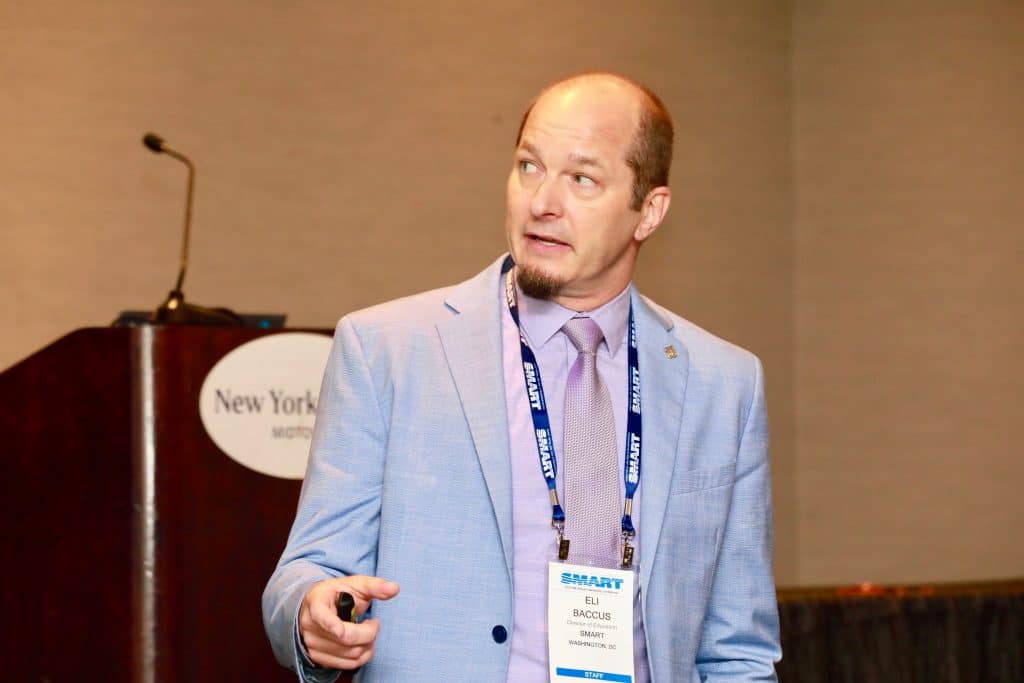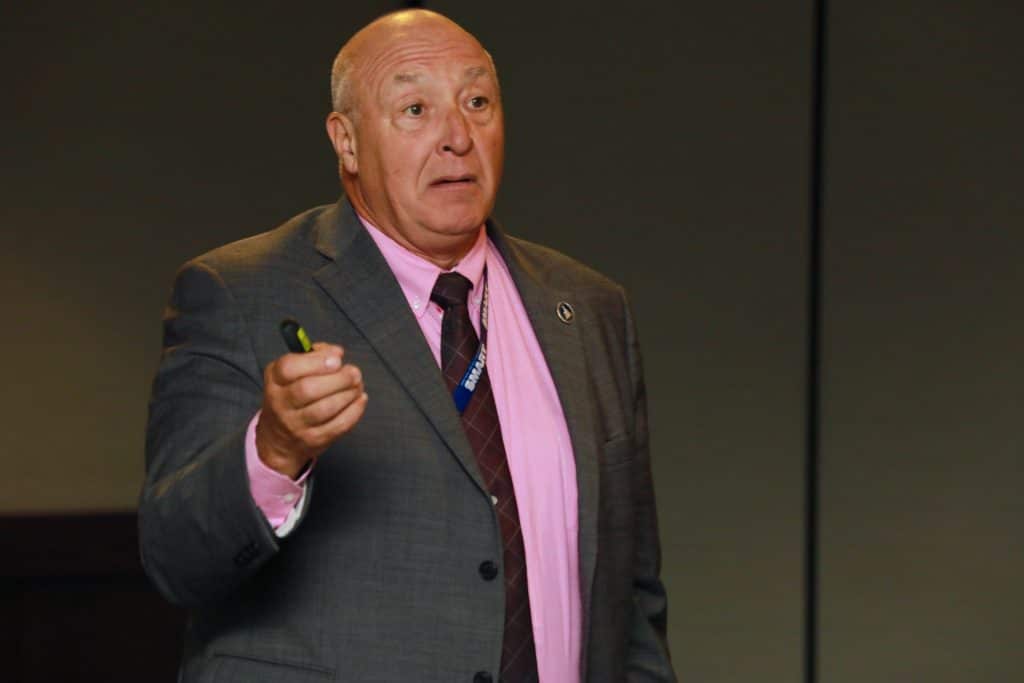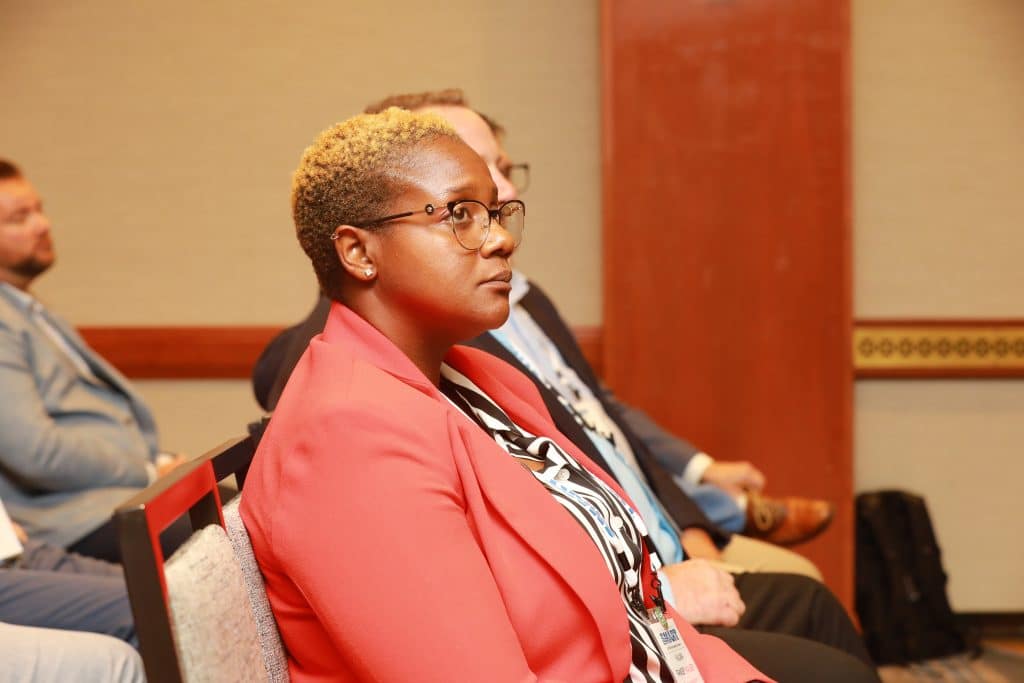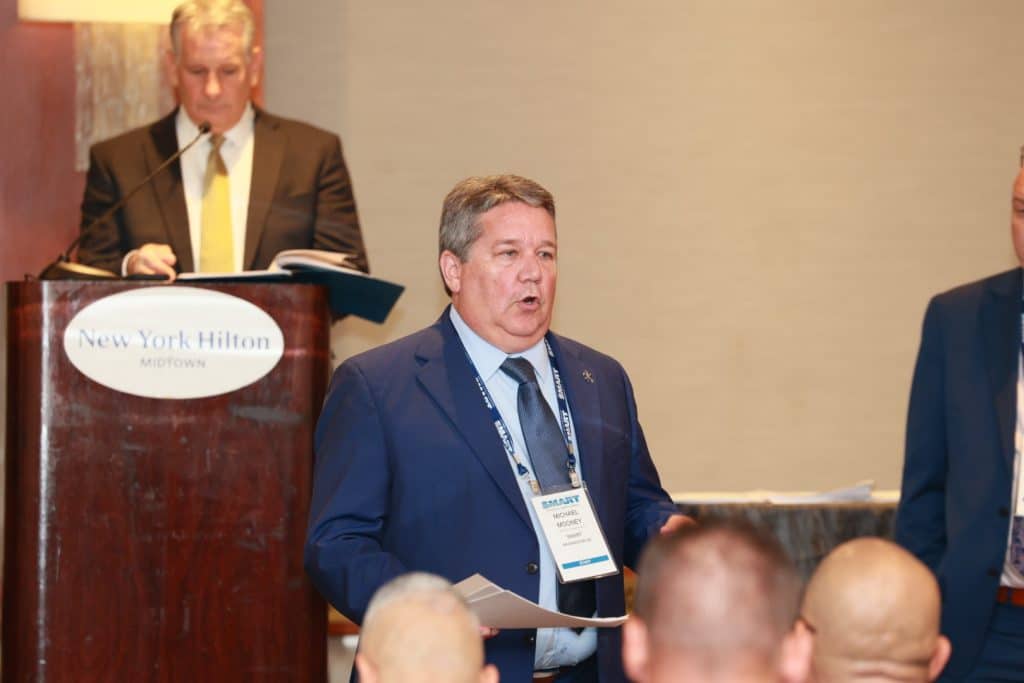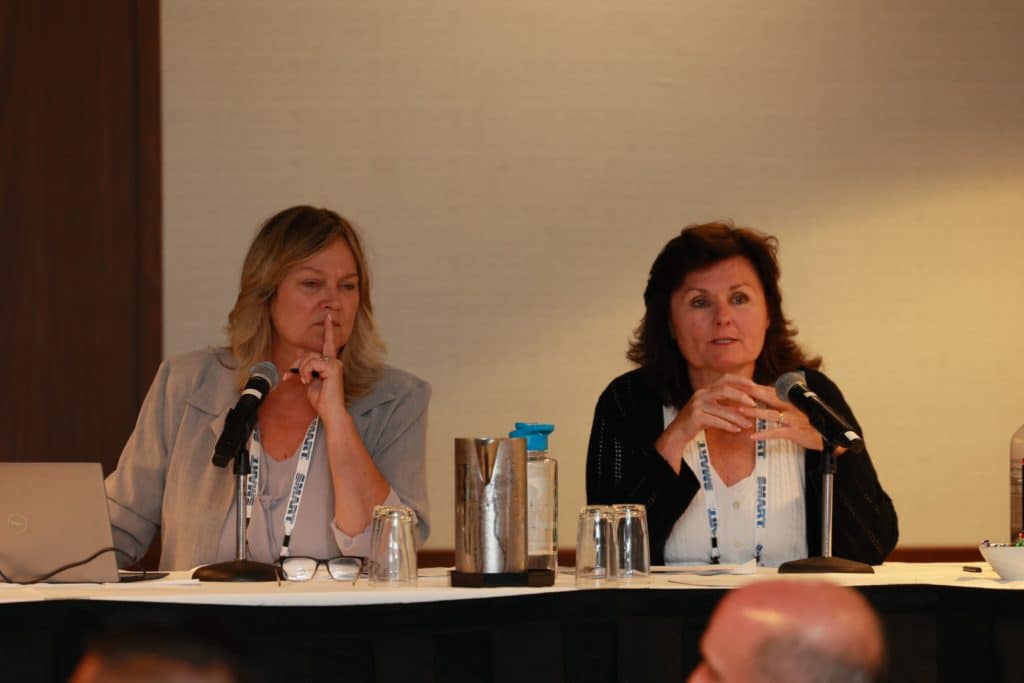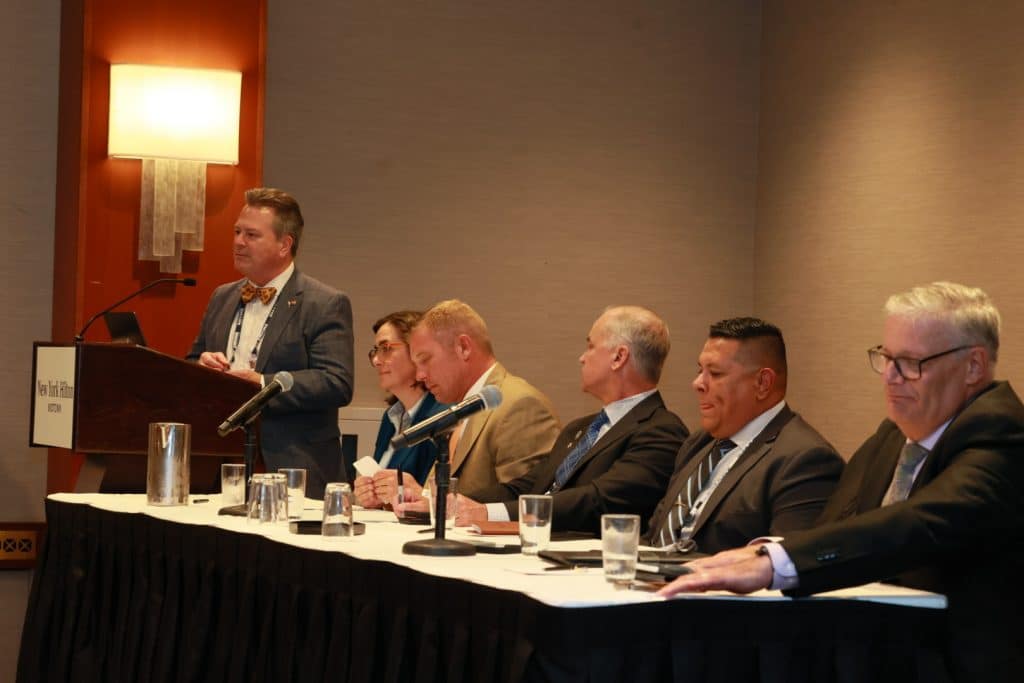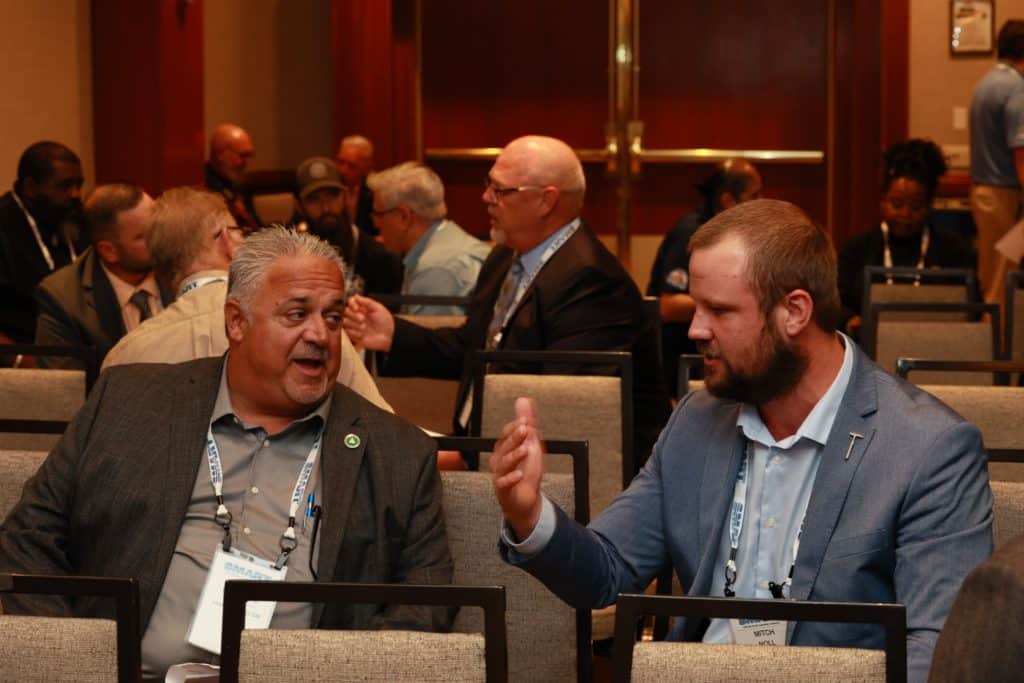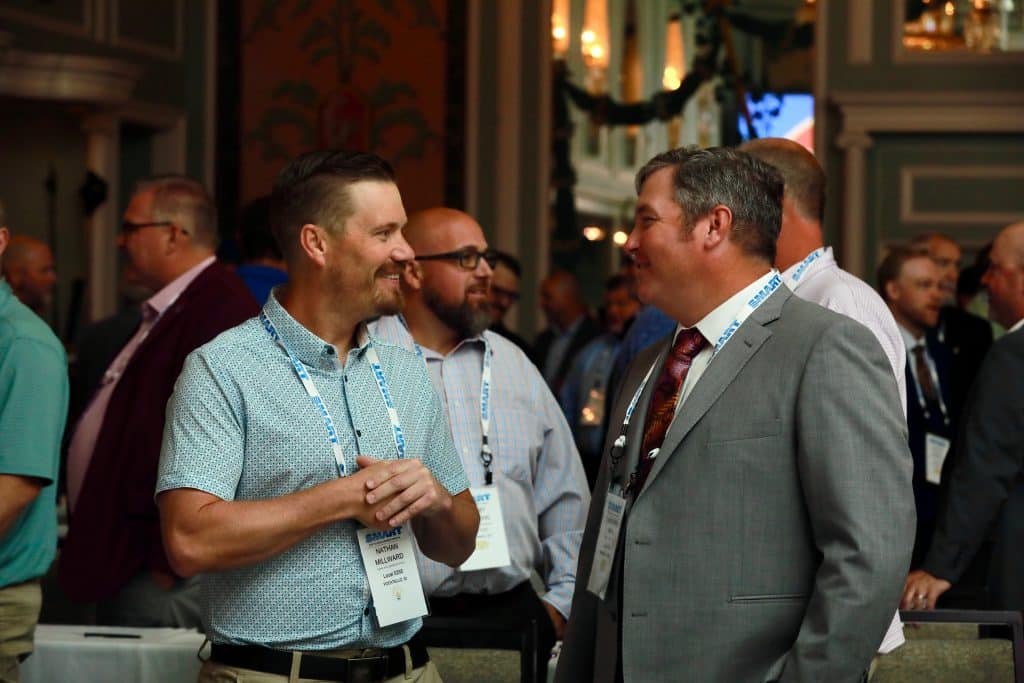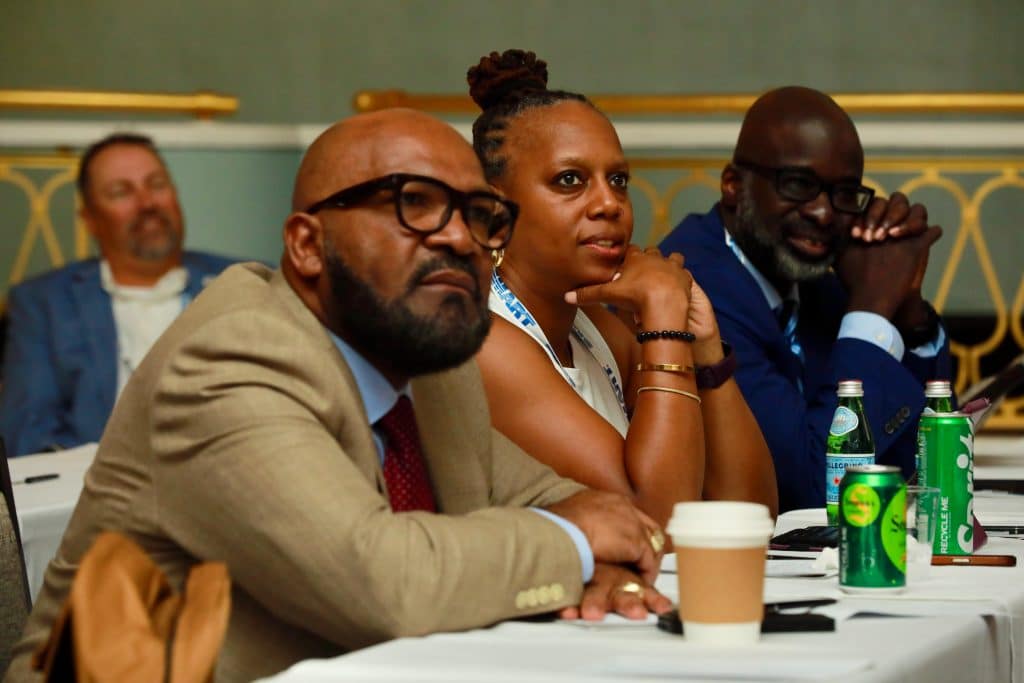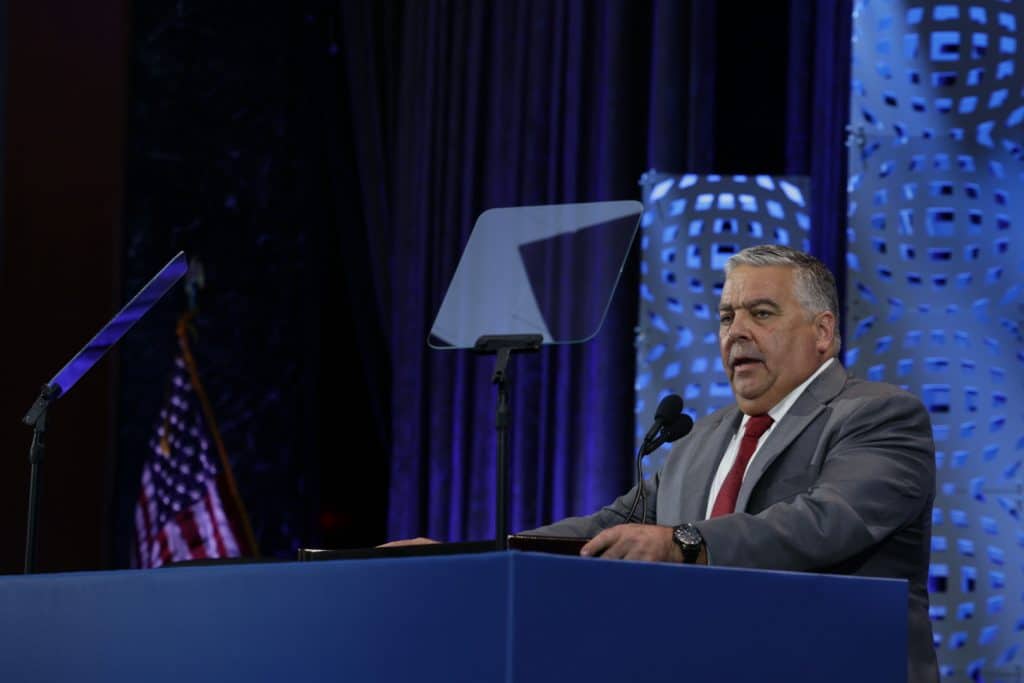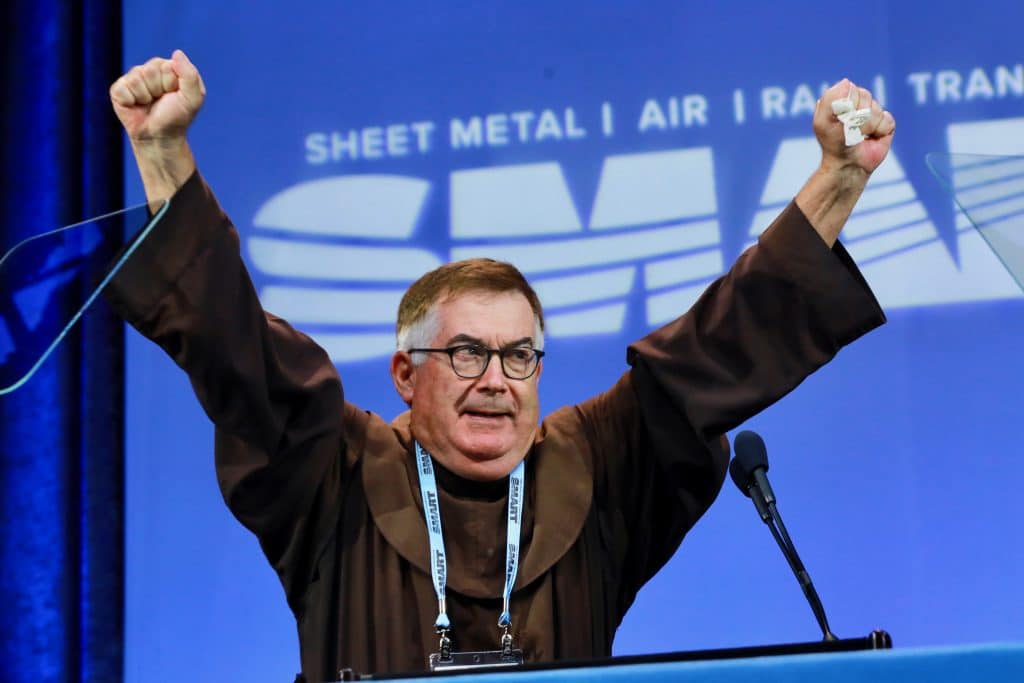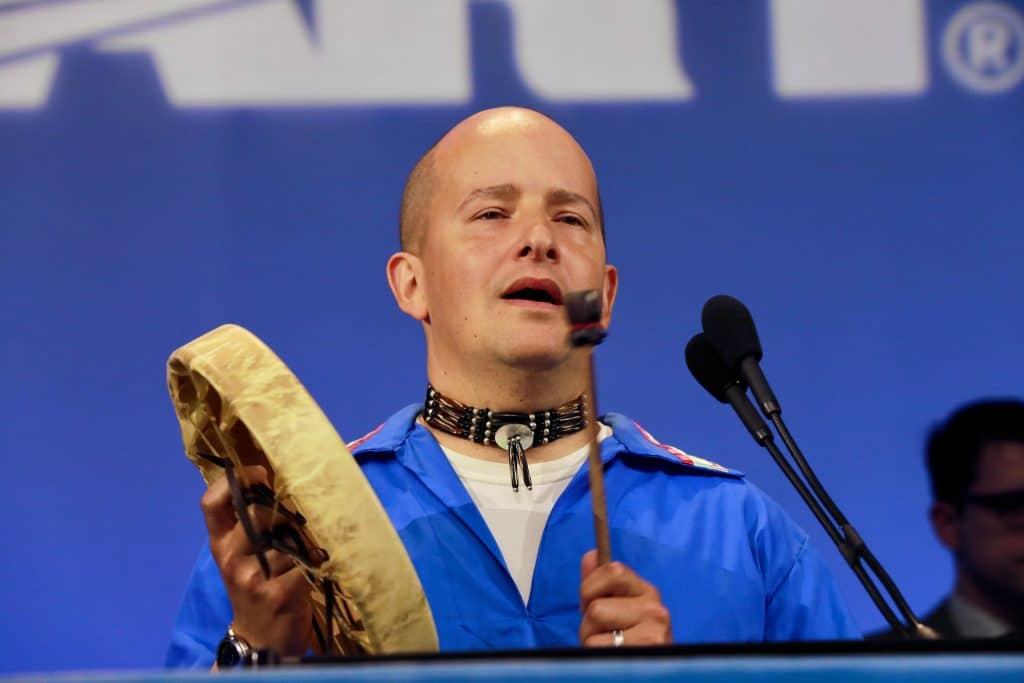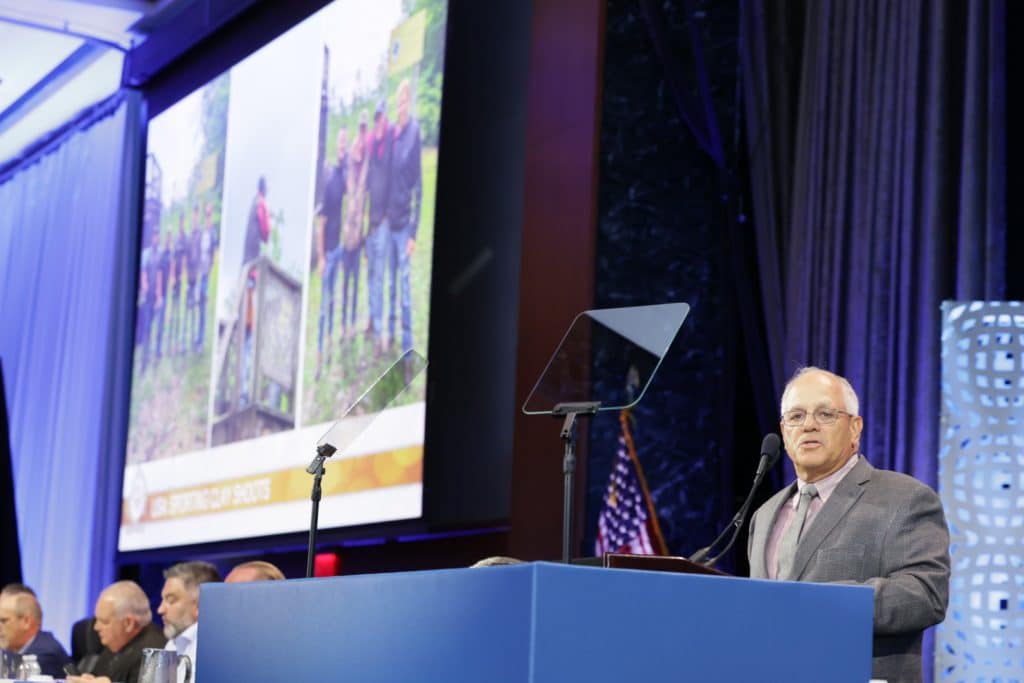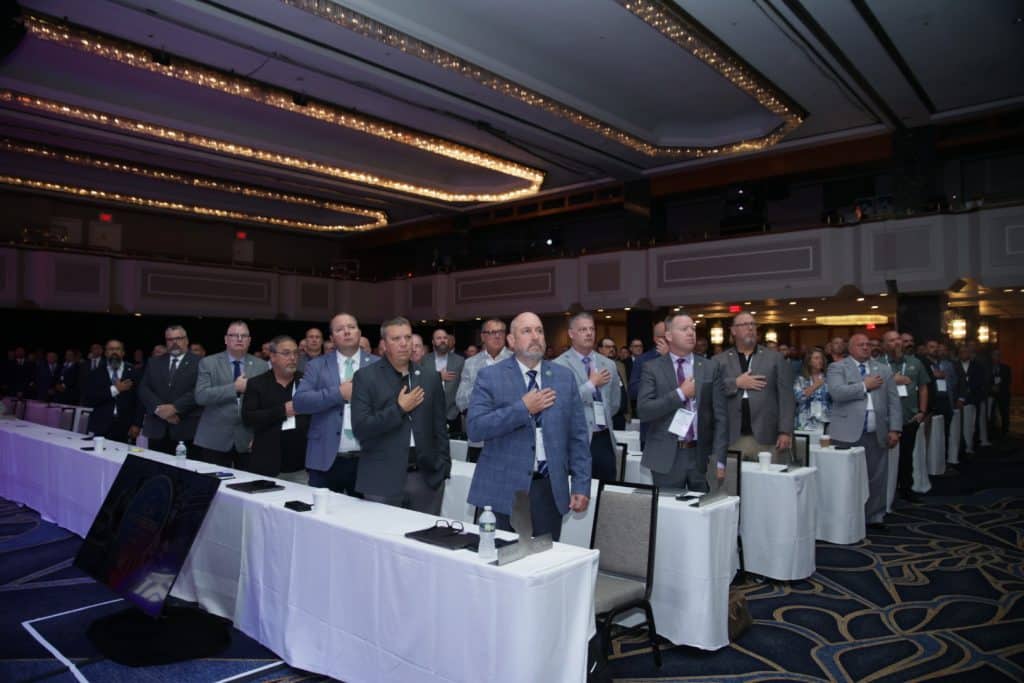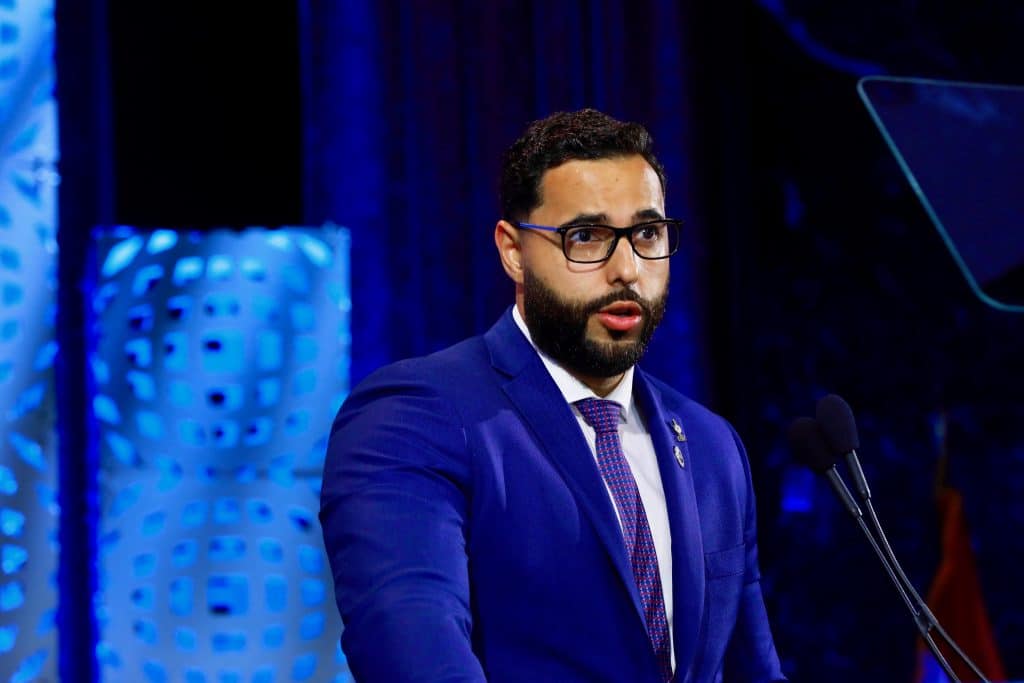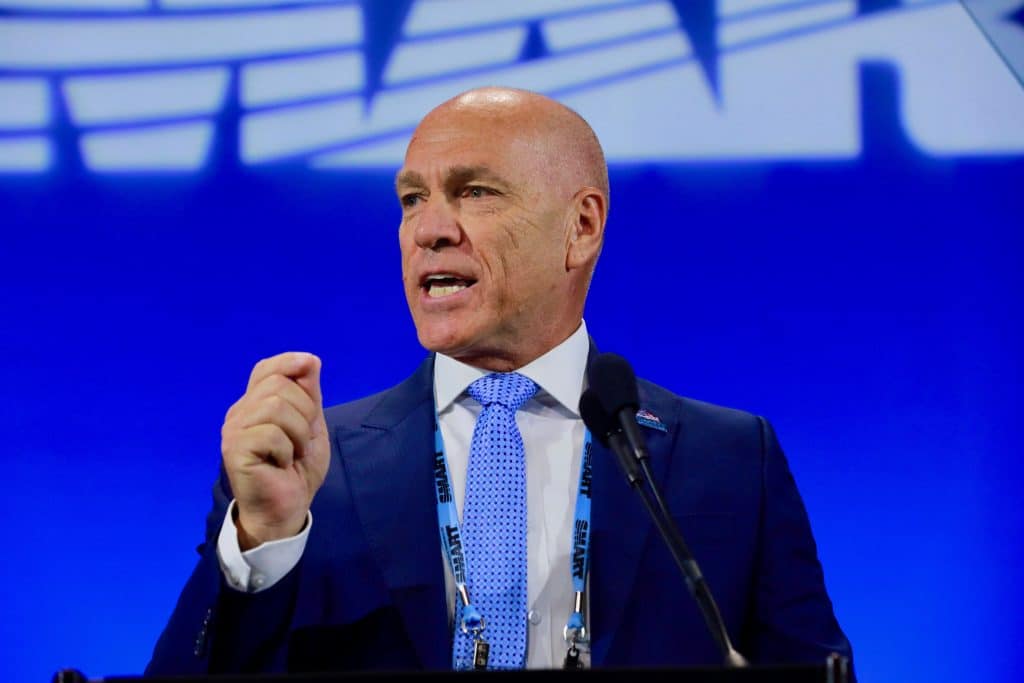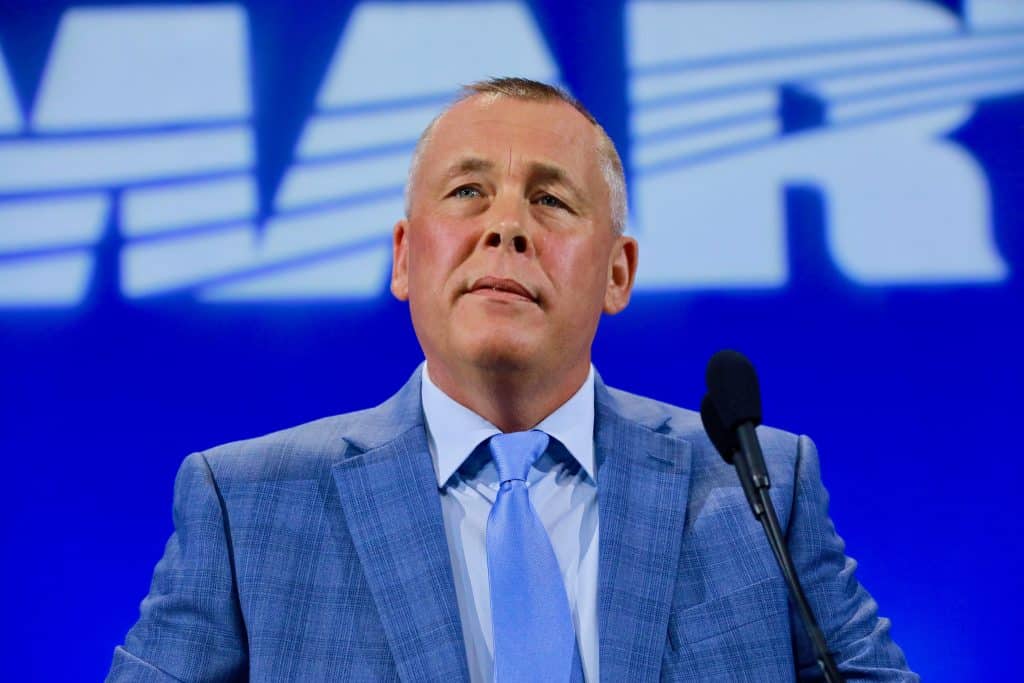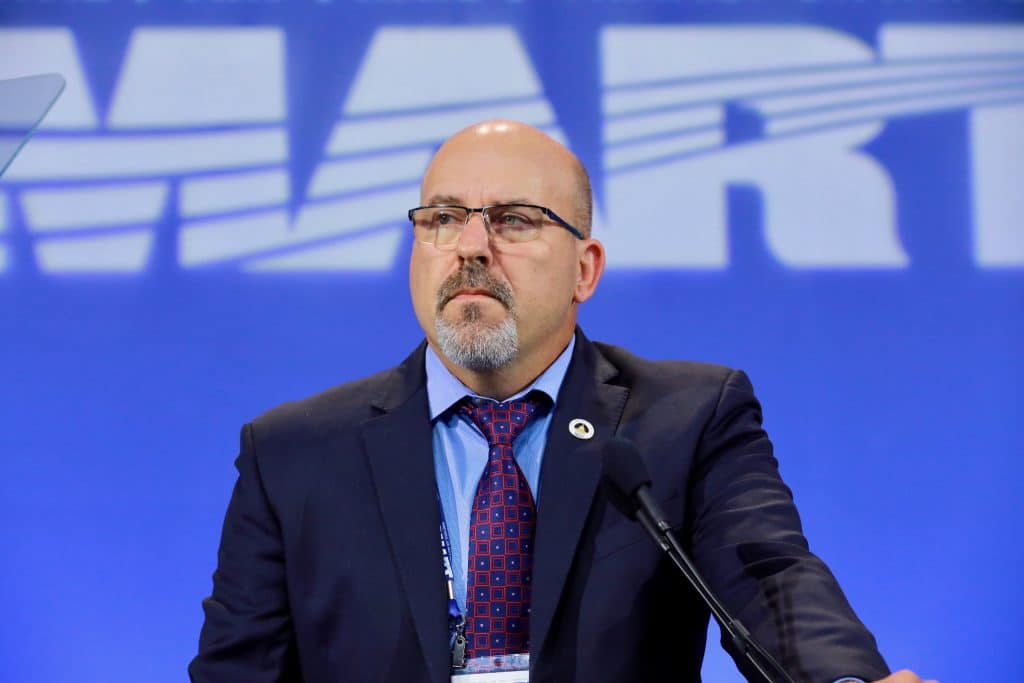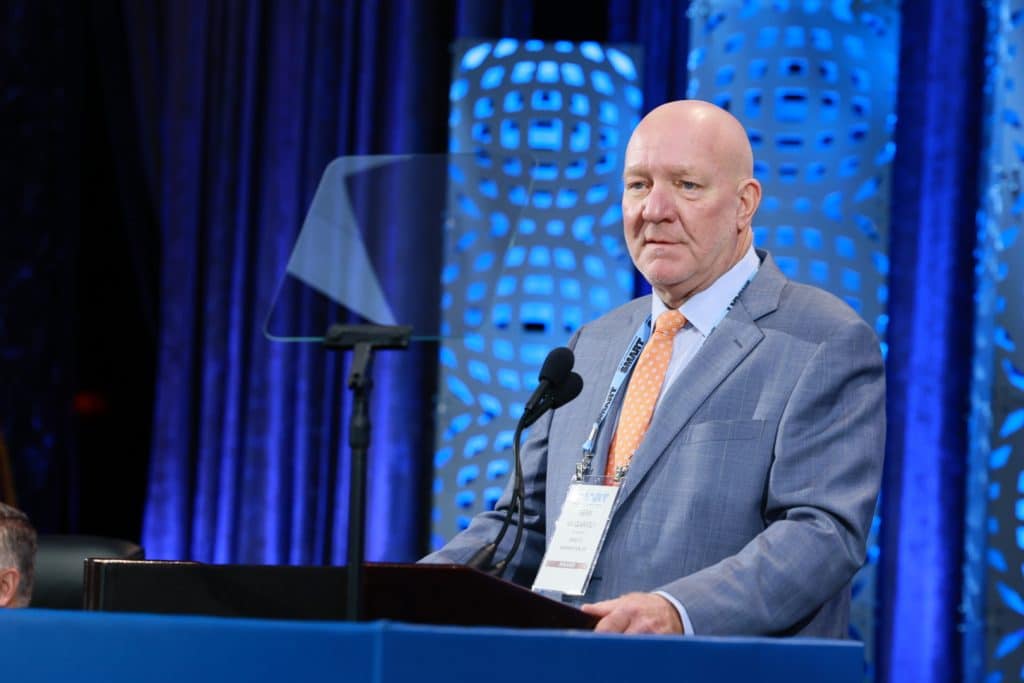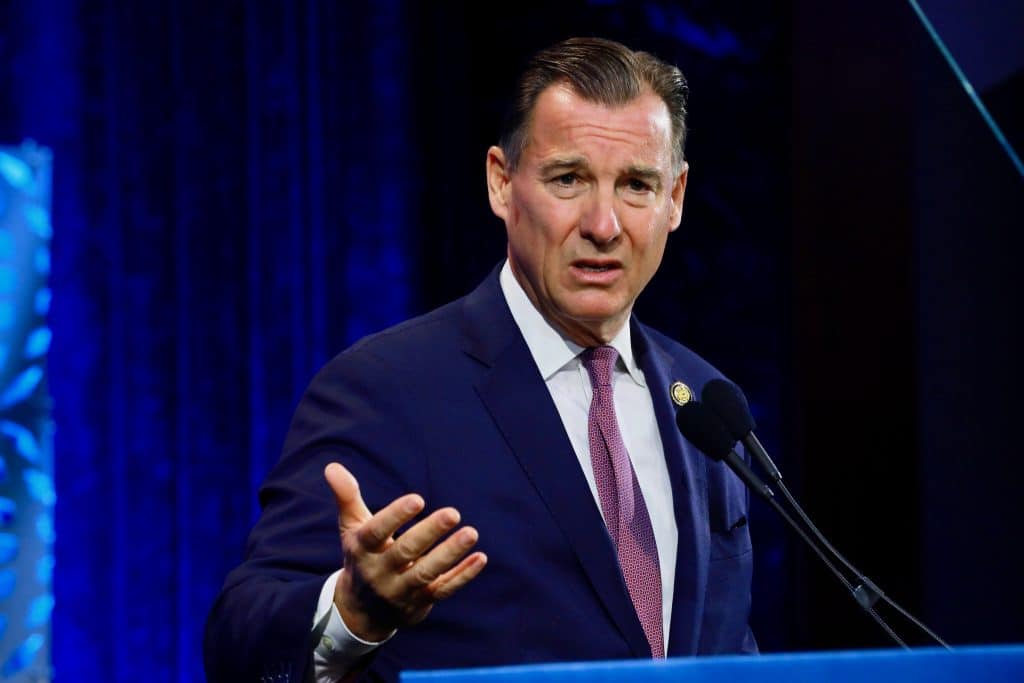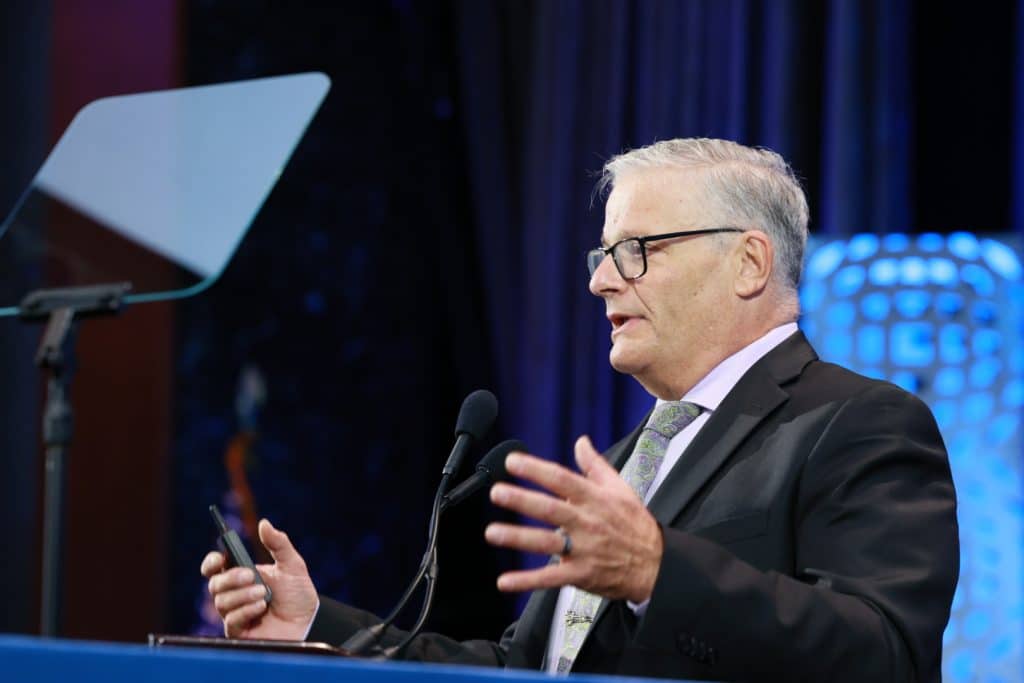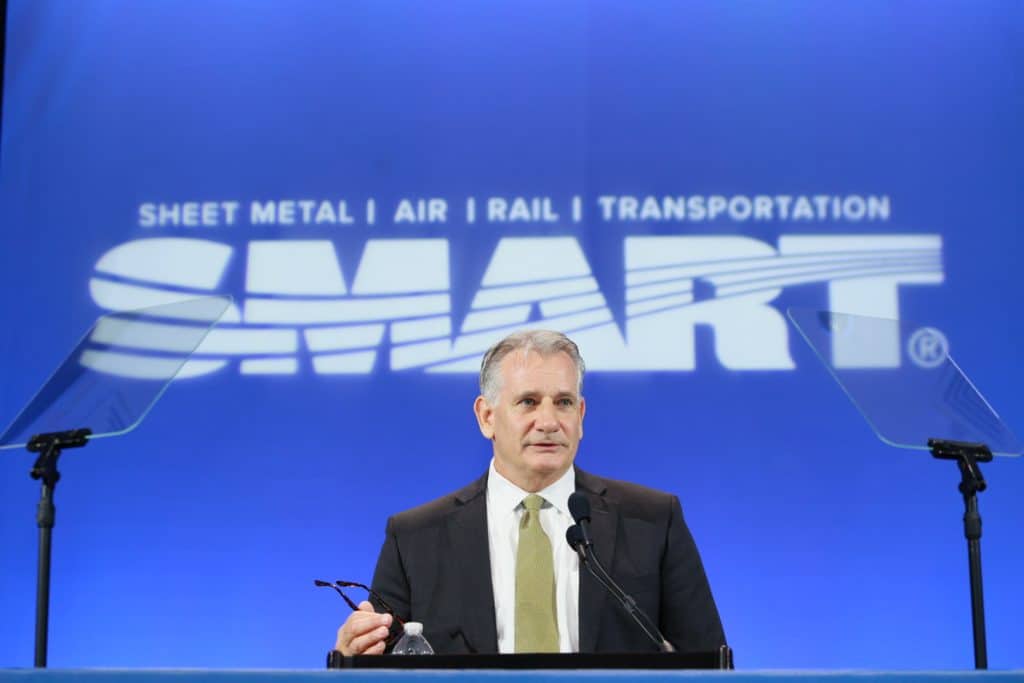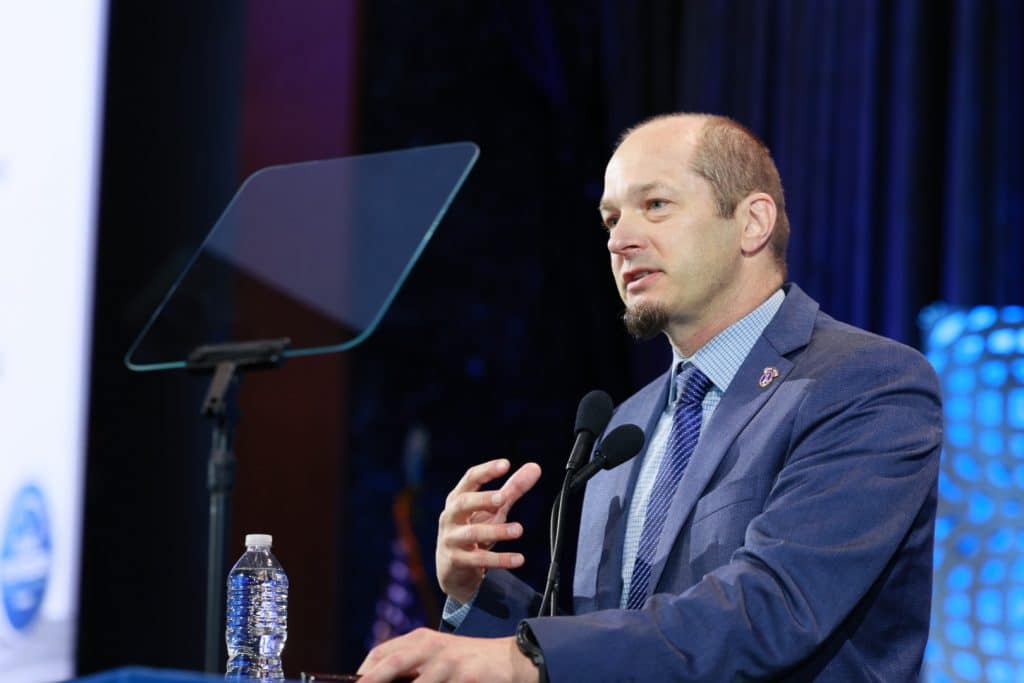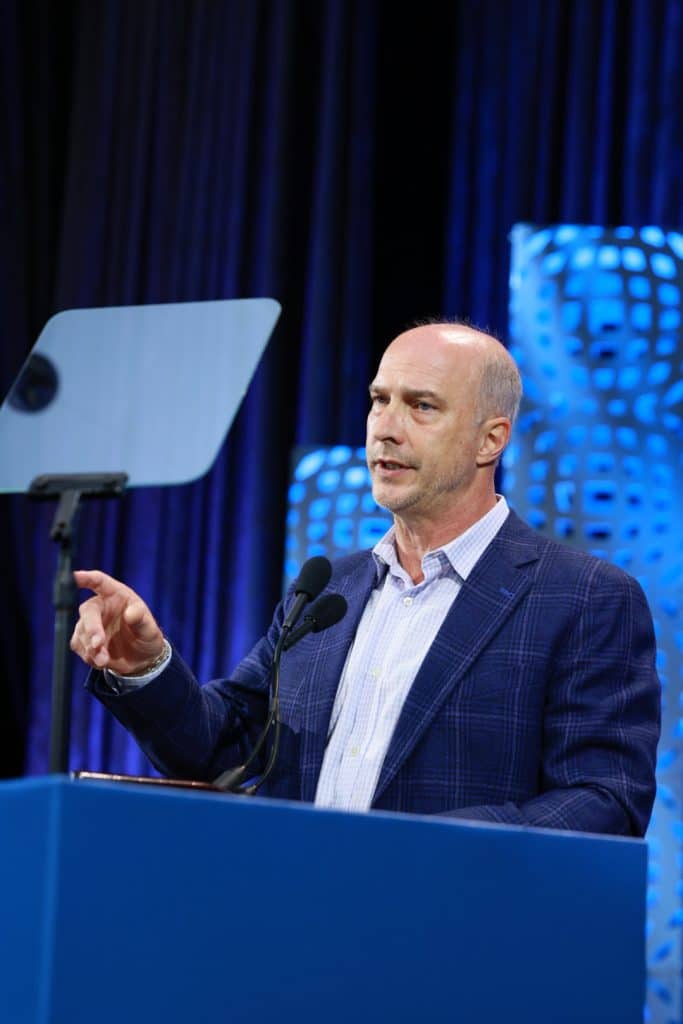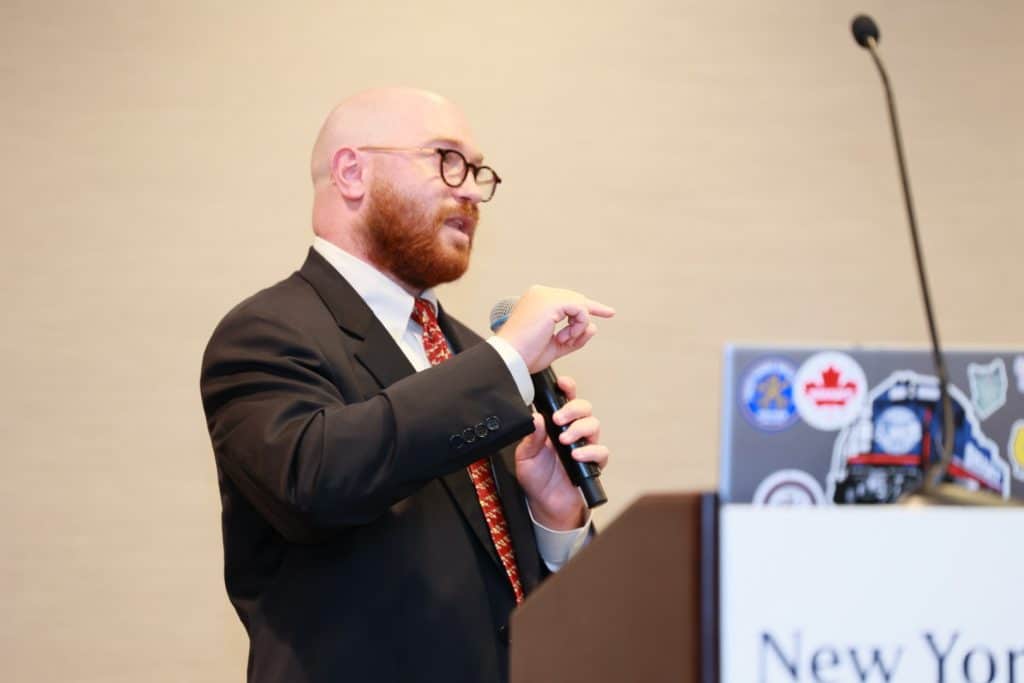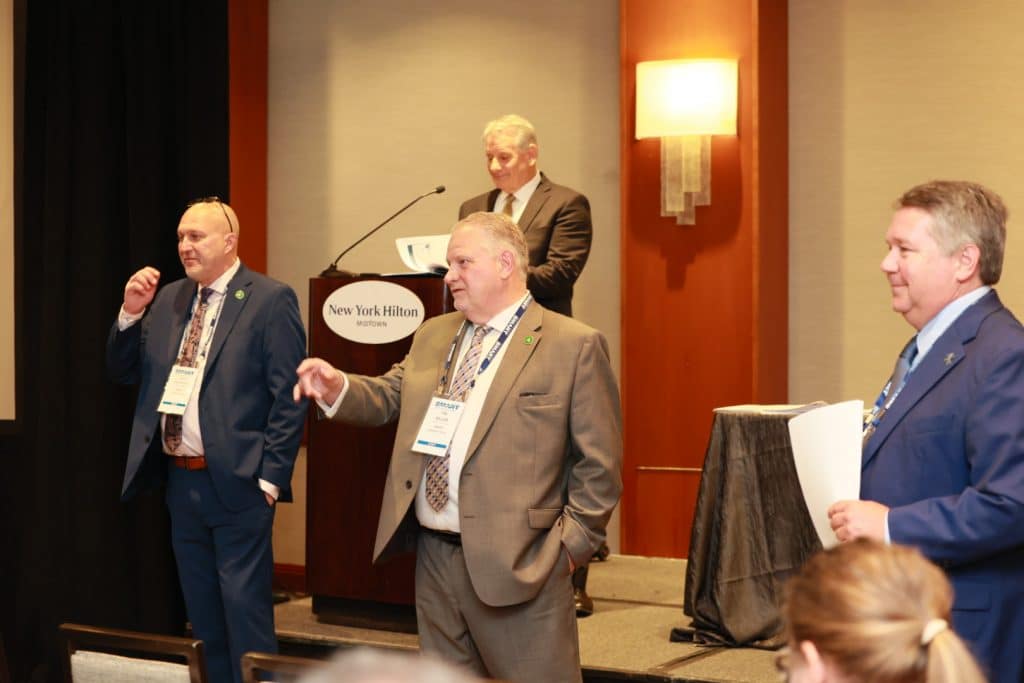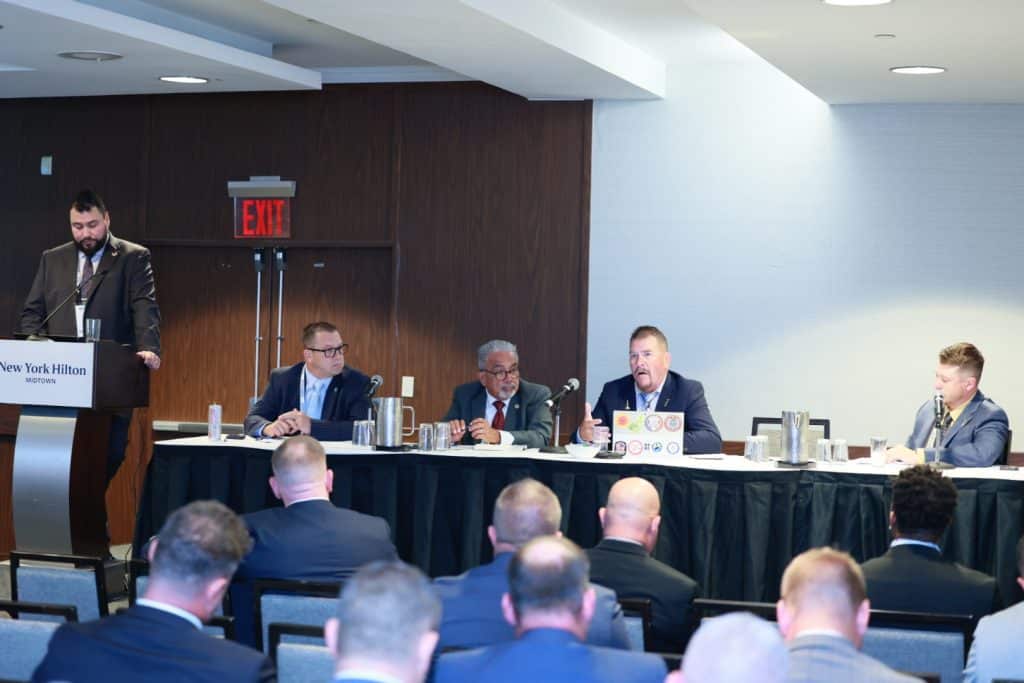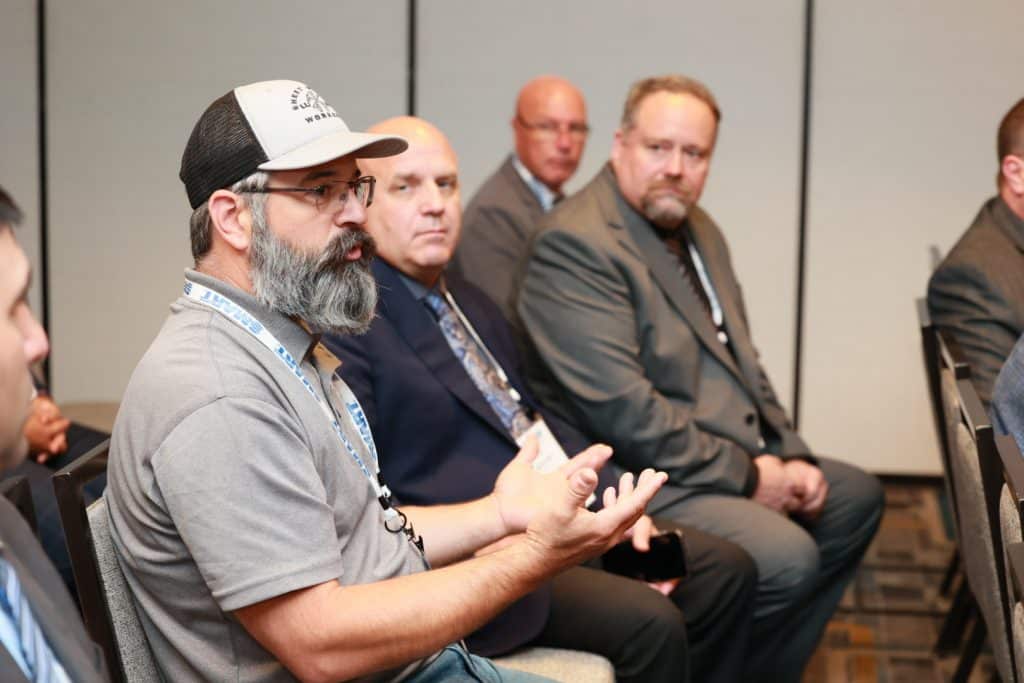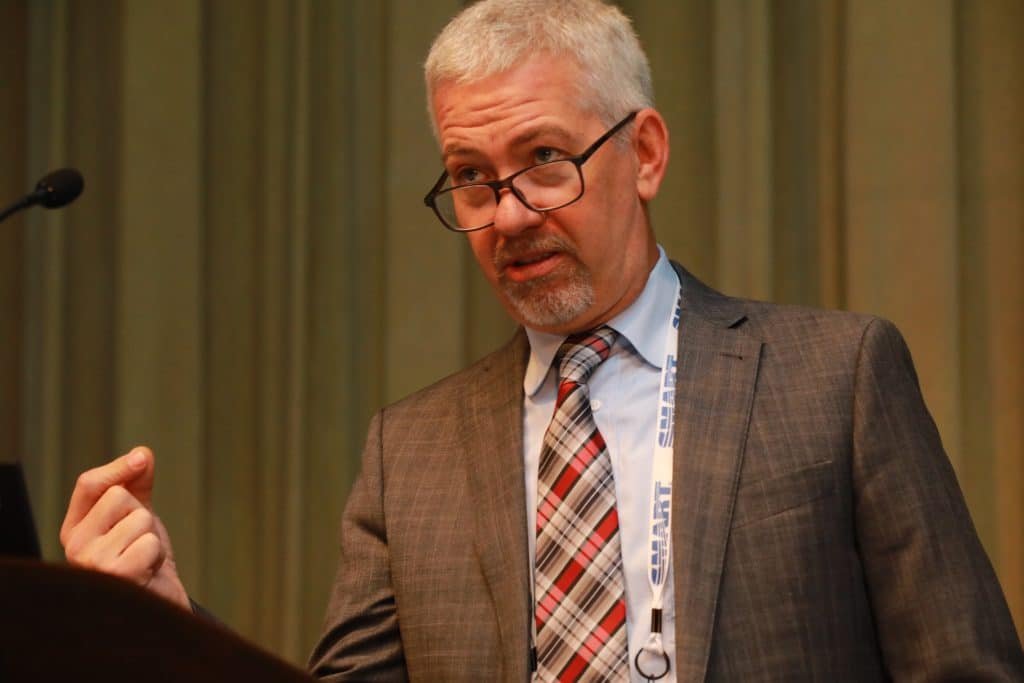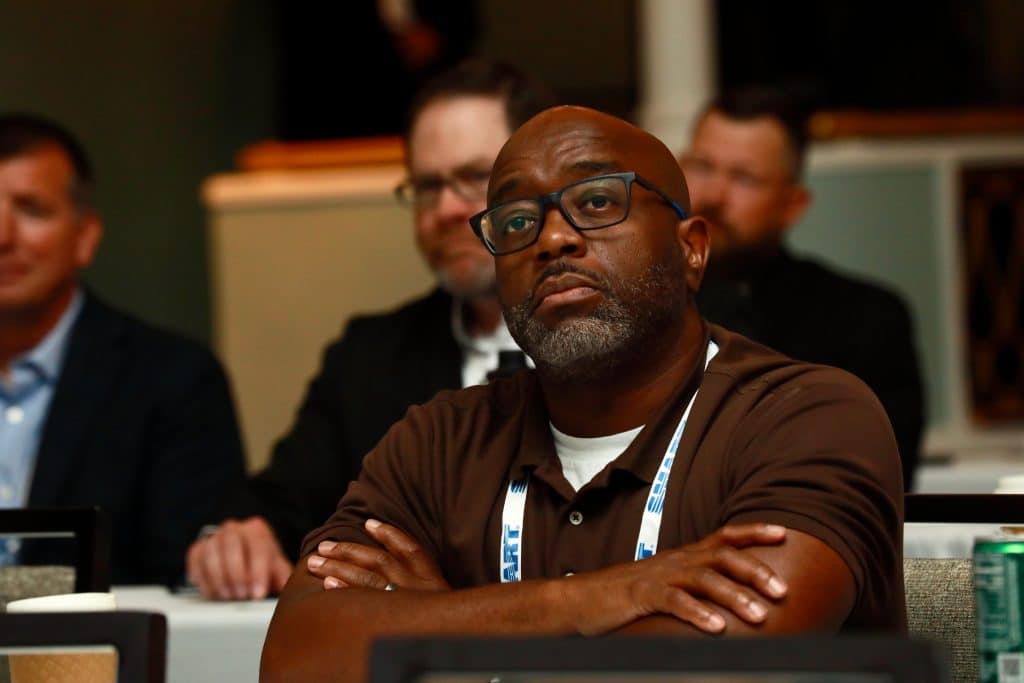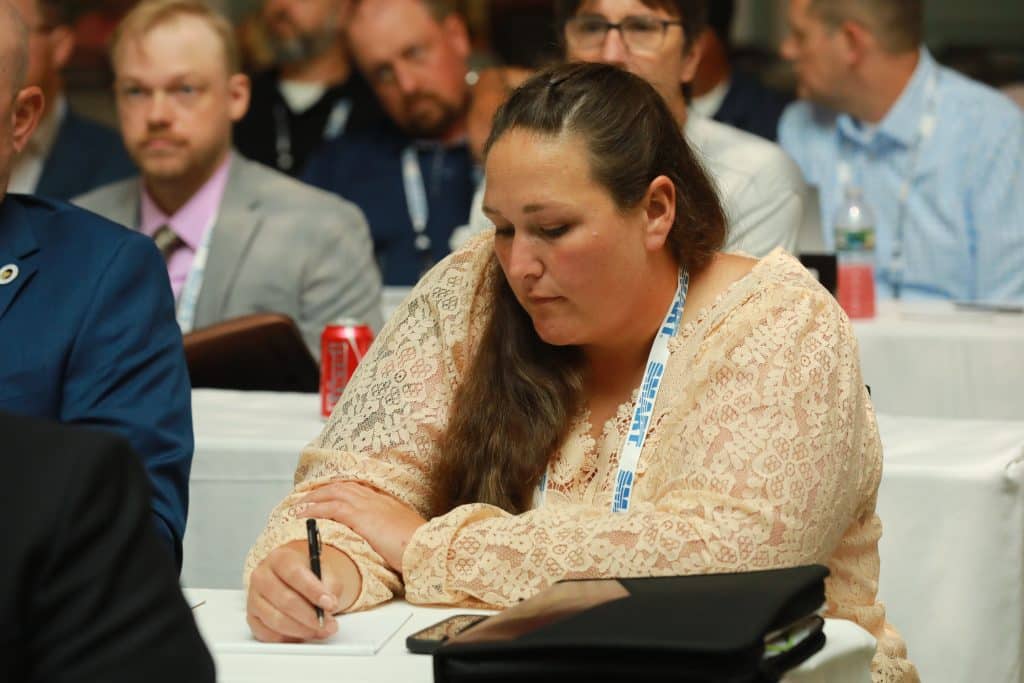From overviewing the foundation we’ve built to demonstrating what SMART solidarity means in action, local officers didn’t let up on fighting for what matters on the last day of the 2025 SMART Leadership Conference. Attendees heard from various guest speakers and honored fellow members, leaving New York City with a reinforced bedrock of solidarity on which to stand as we face the challenges ahead.
Read recaps of day one and day two.
“We’ve had the opportunity to learn, to share, to enjoy solidarity … but we also got the chance to recommit to our fight,” General President Michael Coleman said. “This fight is hard, it’s constant, it’s exhausting, a lot of times it’s thankless, but it is worth every minute.”
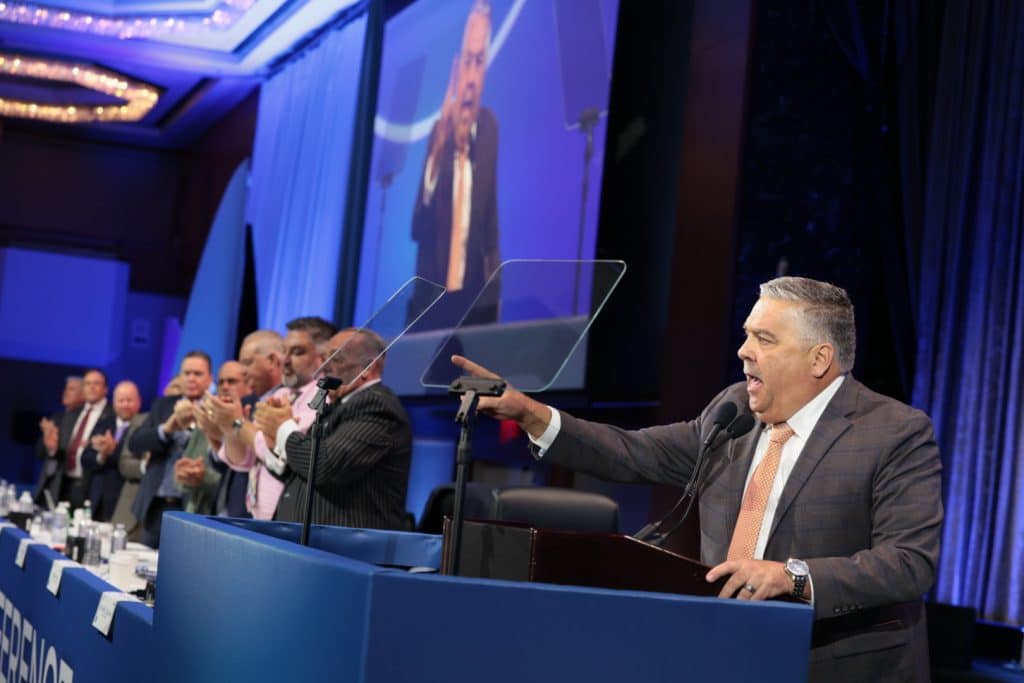
STB chair visits SMART conference in the wake of merger news
The Surface Transportation Board (STB) plays a key role in the careers and lives of SMART-TD railroaders, overseeing the economic regulation of surface transportation — particularly freight rail — and the development of major railroad legislation. For that reason, SMART is committed to working with the STB in any way possible to benefit the lives of members; a commitment demonstrated as officers welcomed STB Chair Patrick Fuchs to the leadership conference on Wednesday.
“I have so much respect for your work, you, and all your contributions,” Fuchs told attendees.
In his remarks, the STB chair provided an overview of his role and the structure of the STB, as well as his goals as chair, namely accountability and transparency to the public and to the various bodies that the board serves.
But the biggest talking point for officers in the room was the proposed Union Pacific-Norfolk Southern merger.
Fuchs was prohibited from talking about his personal views on the merger or answering specific questions; however, he was as open as he could be, and he was crystal clear about one thing: “As long as I’m chairman, labor will always have a seat at the table. … We need your perspective.”
SMART-TD found out about the proposed merger from the news. By contrast, Chairman Fuchs — who was appointed chair this year by President Trump — told SMART-TD he wanted labor to be involved. He proved that, to an extent, later in the morning: Following his keynote speech, Fuchs participated in a Q and A session with SMART-TD legislative representatives and general chairs to find out what our issues are at the ballast level.
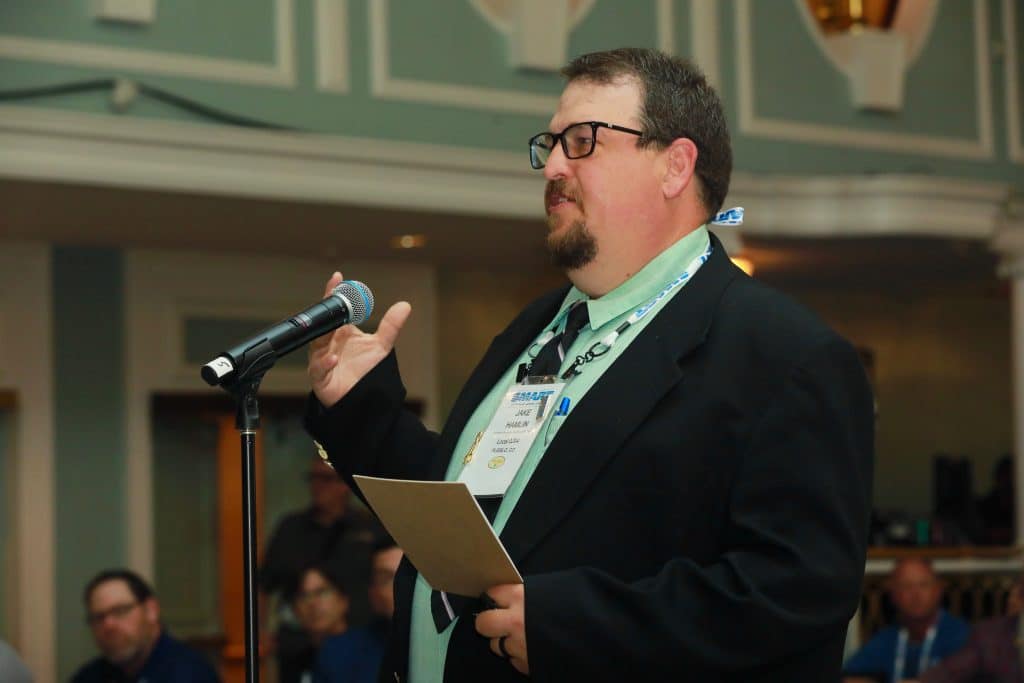
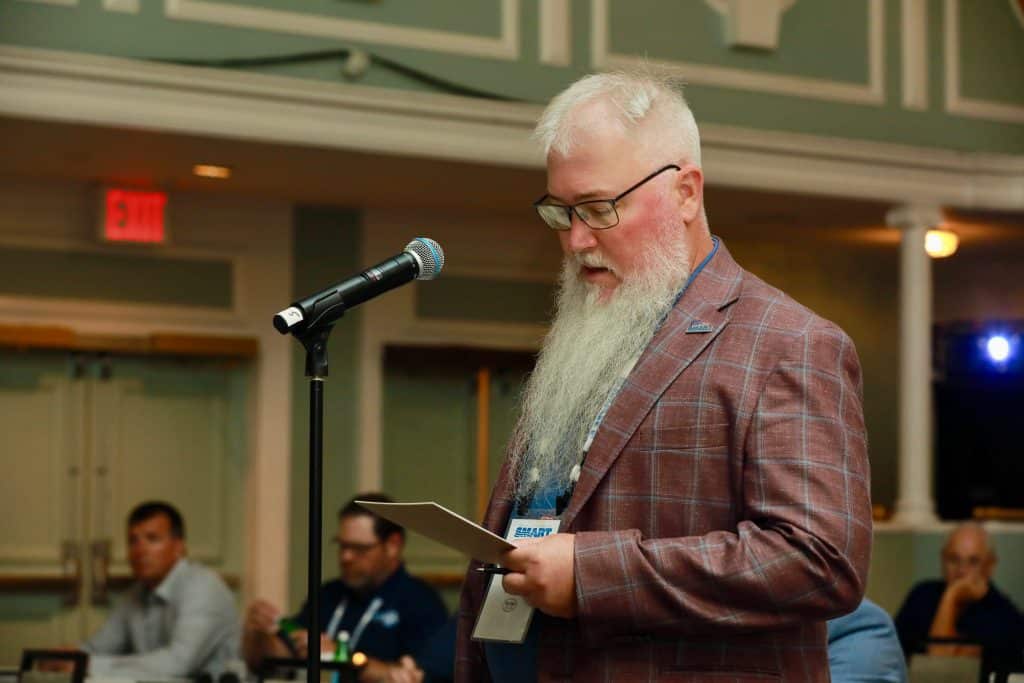
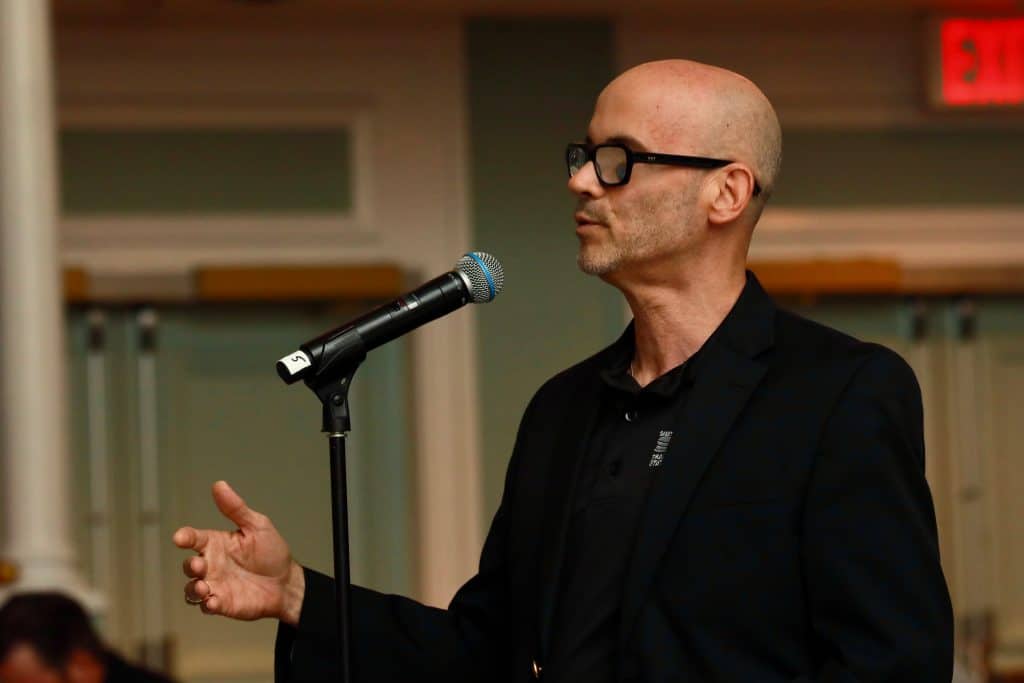
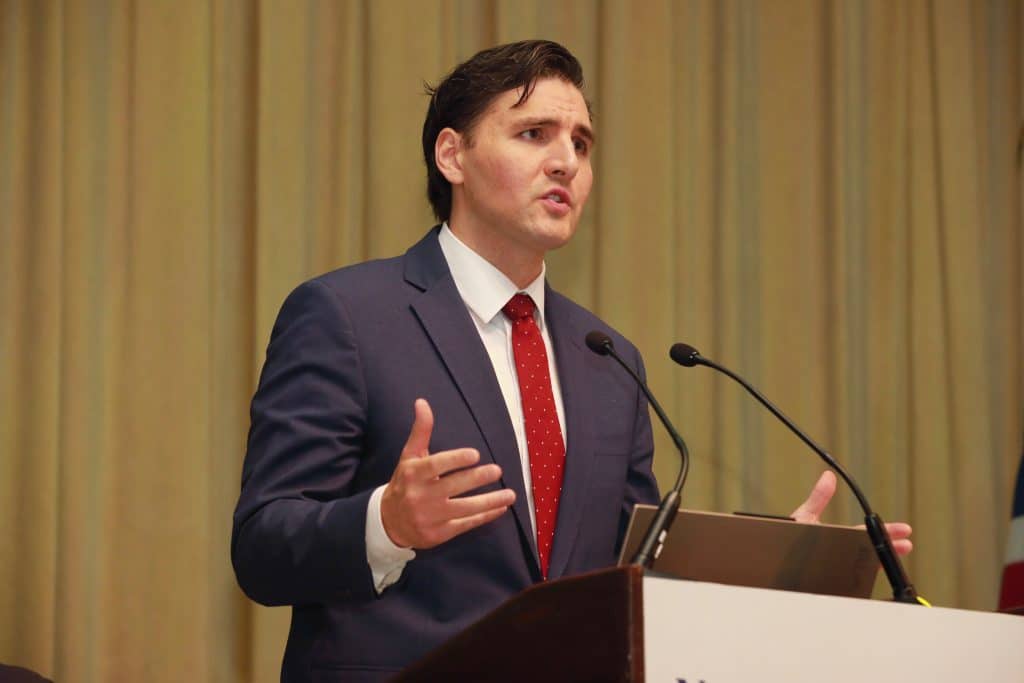
“What I can promise you is that the board will give [the proposed merger] a fair and thorough review,” he told officers.
Fuchs went out of his way to say that he and the STB are seeking SMART’s input, and input directly from members, to be included in the decision-making process
Officers demonstrate solidarity, honor member engagement in general session
An annual highlight of every SMART Leadership Conference is the Joseph J. Nigro SMART Army Member of the Year award, bestowed upon transportation and sheet metal members who go above and beyond in representing the values of our union.
The SMART-TD winner, Local 200 member Amanda Snide, serves as a local chairperson, local safety and legislative representative and as the Nebraska assistant safety and legislative director — all while working as a switchman and yard foreman in North Platte, one of the largest and busiest rail yards in North America. While introducing Amanda, General President Coleman discussed several stories of her recent service to fellow members and working families.
There was the time when, in response to massive furloughs of car inspectors and workers in the maintenance crafts, she went out of her way to negotiate with Union Pacific management, helping build a path for these formerly non-SMART-TD workers to keep their careers, benefits and pensions by moving to new roles as conductors.
There’s the progress Snide and Nebraska Safety and Legislative Director Andy Foust have made in the statehouse in Lincoln, defying the odds in what is considered to be an extremely unfriendly political climate.
There was the time just this summer when Snide was at the TD Regional Training Seminar in Denver, Colorado, when she got the news that one of her fellow members in North Platte was in an accident and in danger of losing his arm. Without hesitation, Snide left the RTS and headed home to ensure her union brother’s rights were protected, that he received the best possible treatment, and that his family was taken care of.
“That shows exactly what kind of leader Amanda is,” Coleman said. “She truly represents this year’s conference theme.”
“Our union has both provided for me, and provided ways for us to give back — fighting for what really matters, our members,” Snide said, reflecting on her journey. “We refer to one another as family because we rely on mutual support … our collective strength is founded on knowing our brothers and sisters stand ready at our side.”
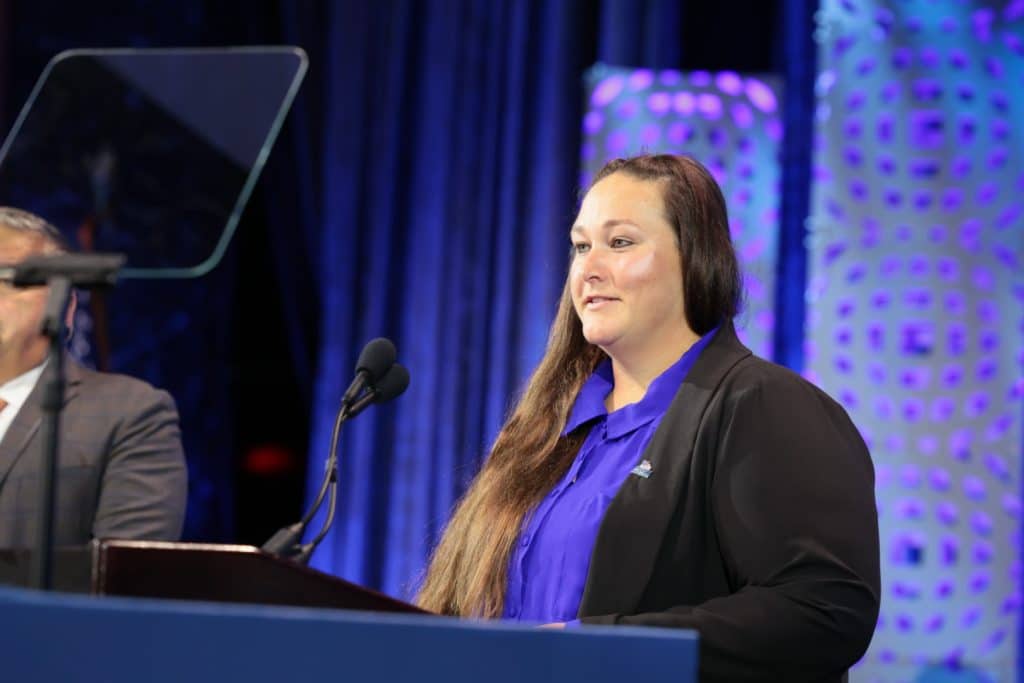
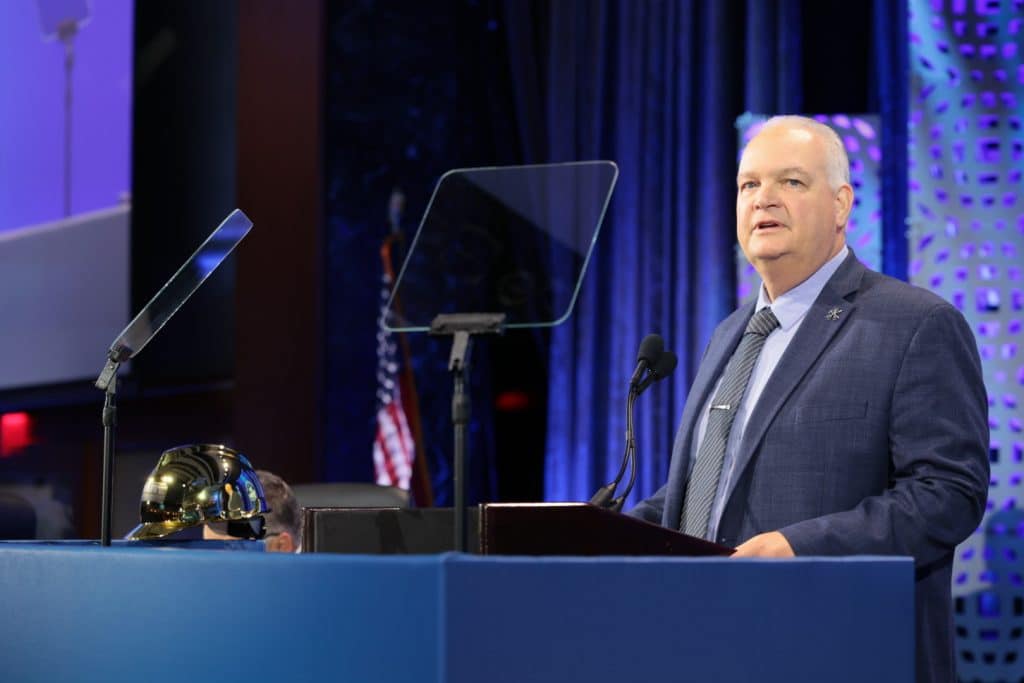
The 2025 sheet metal Joseph J. Nigro SMART Army Member of the Year couldn’t be in New York City to accept her award. But Local 104 (Northern California) apprentice Rebecca Suen received plaudits from leadership conference attendees all the same. Suen, who spent nine years serving her country in the United States Army — helping her pay for college — originally worked in an office job. But after a while, she just couldn’t take it anymore, and thanks to Local 104’s Veteran Direct Entry Program, she started her sheet metal career in 2022.
Since then, General President Coleman said from the podium, Suen has set an example of what it means to be a SMART member. She is a constant presence at Local 104 volunteer events, and she has spoken in favor of project labor agreements and other pro-worker policies at local city council meetings — offering first-hand testimony that has helped win major victories for both herself and her fellow members.
“That’s the kind of leadership our members need,” said General President Coleman.
Local 104 Business Manager Rick Werner accepted Suen’s award on her behalf, telling attendees: “She is what we all look at as one of our true leaders in the industry. … I can tell you, Rebecca’s in every union meeting, she’s there every time we need her to help out — she steps up.”
Maybe the most inspirational moment of the day came when General President Coleman welcomed host local leaders and HEART 9/11 President Bill Keegan to the stage, where Coleman announced to attendees that, collectively, attendees of the 2025 SMART Leadership Conference raised more than $317,000 for the organization.
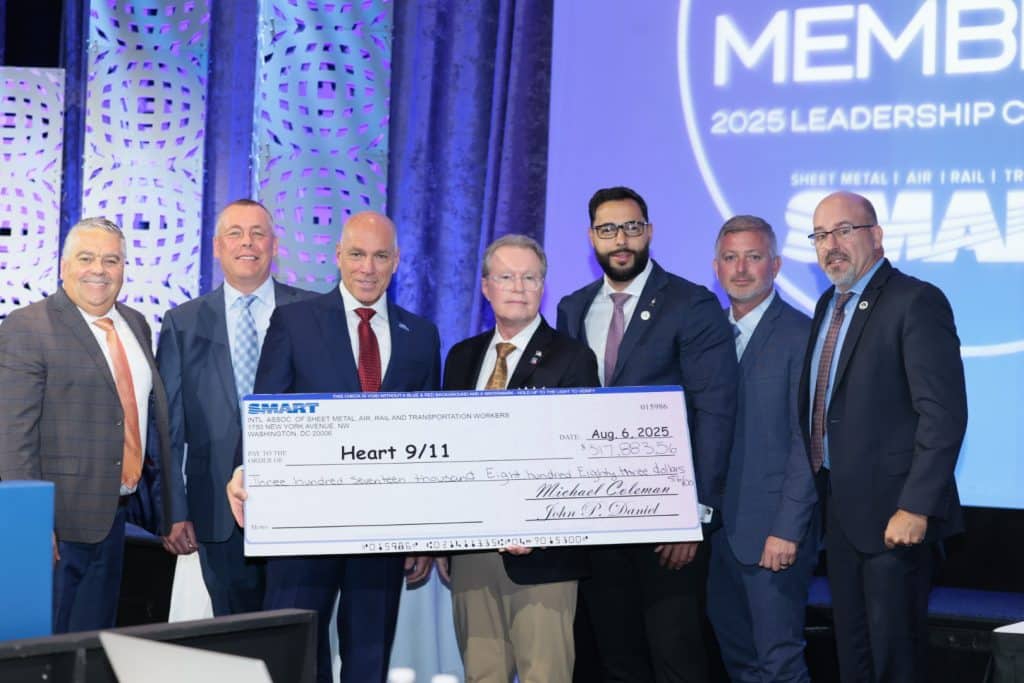
“I’m humbled by that figure. That is incredible. That will do so much to help people in this country recover from disasters,” said HEART 9/11 President Keegan.
“I couldn’t be any prouder of this organization,” Coleman added. “We have proven the true power of solidarity.”
Practicing our principles, looking ahead
Even as the 2025 Leadership Conference began to close late Wednesday morning, SMART union officers kept their eyes on the future — taking steps to prepare for the fights ahead.
Workers in the construction and transportation industries are disproportionately affected by mental health and substance abuse issues. That’s why SMART places such an emphasis on pursuing innovative programs to support members’ mental well-being, SMART Director of Wellness and Mental Health Support Chris Carlough reported to the joint session. Along with Union EAP CEO Ben Cort, Carlough detailed the need for robust mental health support systems and resources for members and their families, whether for depression, anxiety, loneliness, suicide prevention, addiction or more. One of those resources? Union EAP.
“We can talk about this — talk is cheap. But when we start putting money behind this and demanding professional care for our members, then we’re doing something,” Carlough said.
“I can look you square in the eye and tell you that our people will fight for your members — for their mental health, for their overall well-being. We will provide the same service and care to you that you give to the world,” Cort added.
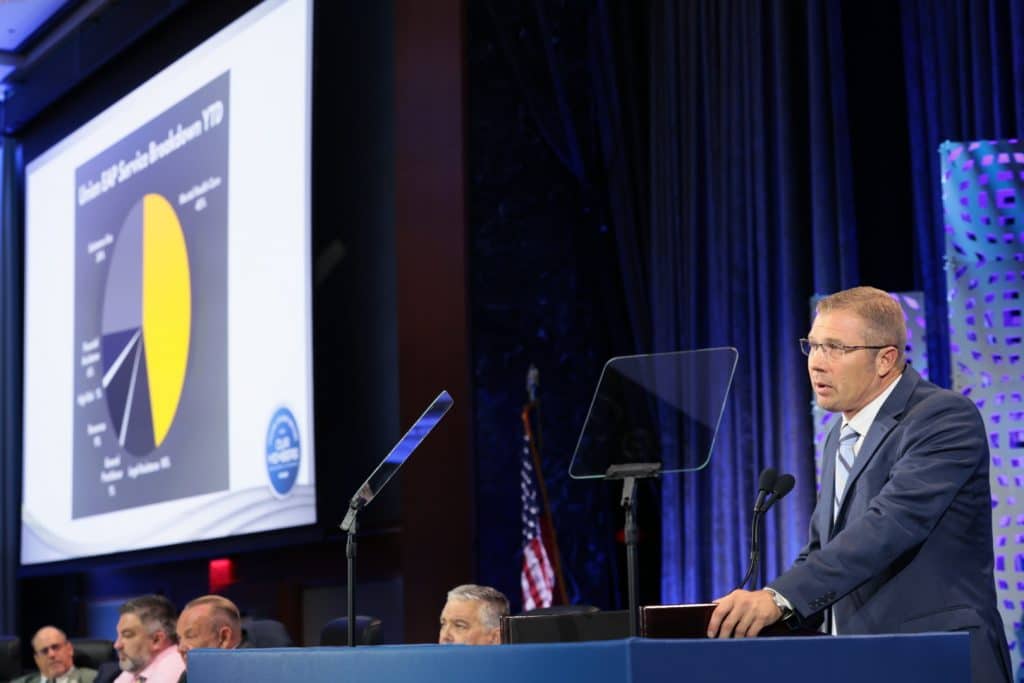
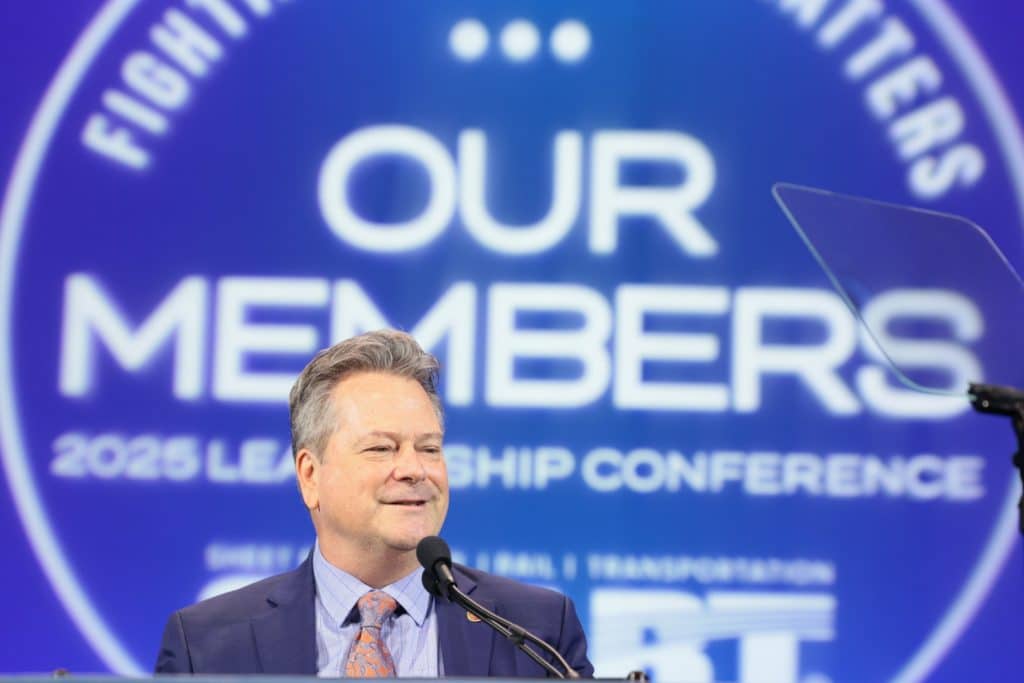
The session for sheet metal attendees kicked off with SMACNA CEO Aaron Hilger. Hilger has worked in near lockstep with SMART to strengthen the unionized sheet metal industry, recognizing the threat posed by bad-faith contractors, the nonunion sector and other competitors. He also discussed the shared attacks SMART and SMACNA face, from cancelled federal funding for construction projects to tariffs that toy with supply chains that the industry relies on.
“We are nothing without each other,” Hilger said. “We can’t do our jobs without the contractors, we can’t build without you. This is a partnership — and we win when we work together.”
Read a recap that includes details on the SMART-TD session here.
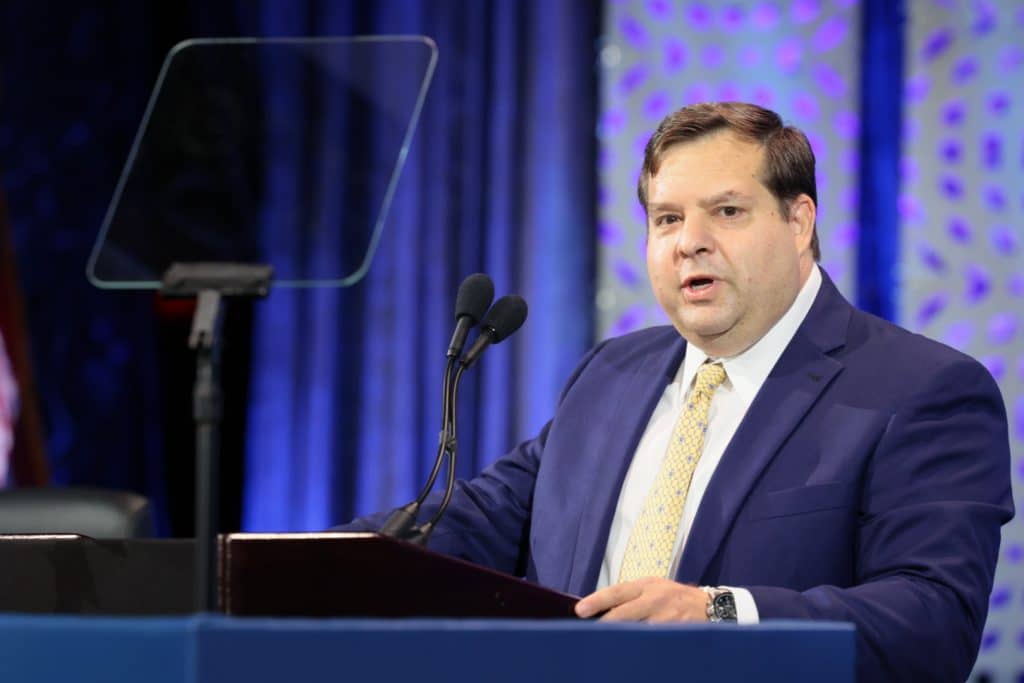
Steve Binder, managing director and head of Taft Hartley at Hamilton Lane, spoke to sheet metal officers about the SMART Air and Energy Fund. The fund, Binder explained, is a way to use union funds to benefit members directly: generating competitive returns for SMART funds and promoting industry growth that creates work hours for SMART members.
“This is about seizing the opportunities that align with our goals — driving growth in the green energy sector, creating jobs for our members, expanding work hours and making sure our money works for us, not against us,” Binder said.
SMART has invested in members in Canada in recent years, including by appointing Bob Gougeon as International representative for government affairs and megaprojects. In his address, Gougeon highlighted the momentum building across Canada for SMART members. From coast to coast to coast, the nation is busy with work — major infrastructure and energy projects are not only underway but also being fast-tracked, thanks to a government that is prioritizing nation-building initiatives.
Looking ahead, Gougeon spoke about preparing for the next wave of opportunities in emerging sectors like green energy. With determination and solidarity, he reminded attendees that we’re not just building projects — we’re changing the world, one day at a time, by standing up for each other and helping those around us.
“Through every job, every new apprentice, every conversation and every helpful gesture, SMART is changing the world, one day at a time,” he said. “Sometimes we don’t realize how our words and actions affect someone’s life. It’s a wonderful thing to hear a member say, ‘I didn’t realize that was possible.’ ‘I really appreciate that.’ And the one that gets me in the heart: ‘You changed my life.’”
One of the most persistent challenges facing working families in the United States is childcare. That’s why SMART has partnered with TOOTRiS to offer wraparound childcare benefits to members at participating United States sheet metal locals. TOOTRiS Senior Director of Strategic Initiatives Eric Cutler presented on the impact of childcare on SMART members — and how SMART and TOOTRiS are working together to provide a path forward.
“Childcare is critically important for working families, for members that are considering starting a family. This program continues to position SMART as a leader in the trades,” Cutler said.
And Christy Foley, SMART office manager and manager of membership services, reported on the Sheet Metal Workers’ Scholarship Fund and Foundation, playing a video of the year’s “best essay” winner reading her awarded effort. The stepdaughter of Local 265 member Brett Johnson, Amina Idris arrived in the United States after fleeing the war in Ukraine; in a video she recorded reading her essay, she detailed the life-changing impact of her stepfather’s SMART membership, stating, “the union has given me the opportunity to build a new future.”
“Another example of how many lives we touch,” General President Coleman said. “It’s just truly inspiring.”
The fight worth fighting
At the end of the joint session, General President Coleman took the podium for closing comments. Meditating on a successful week of hard work, solidarity and skill building, Coleman noted: “I think about the fight, and what we fight for, every single day. How all we do is lift people up, every single day. And then I think, there’s people out there who hate us.”
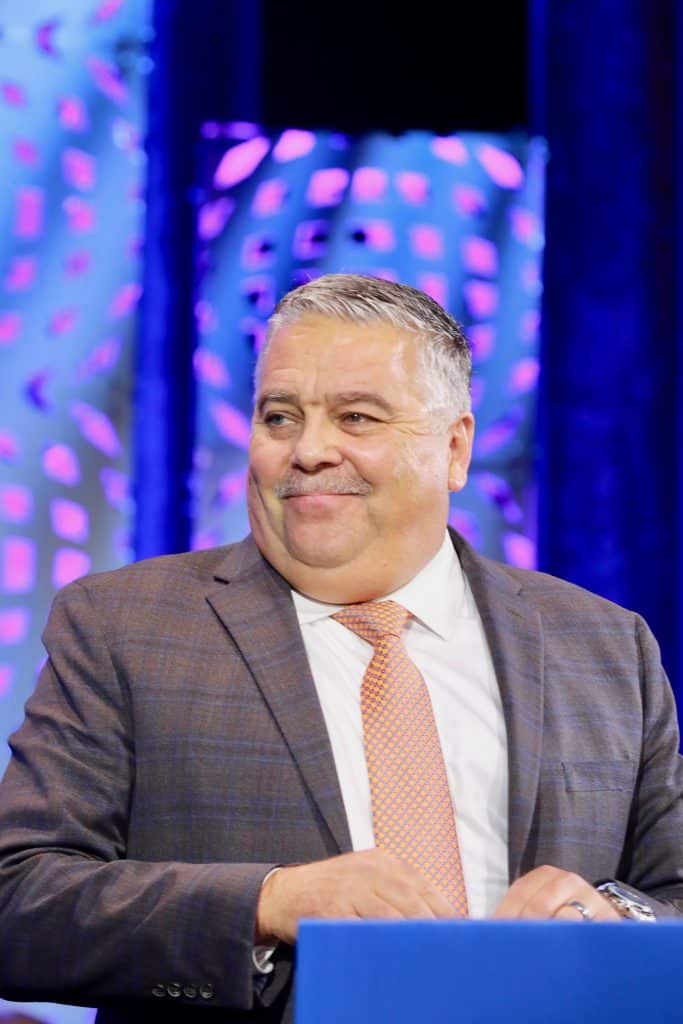
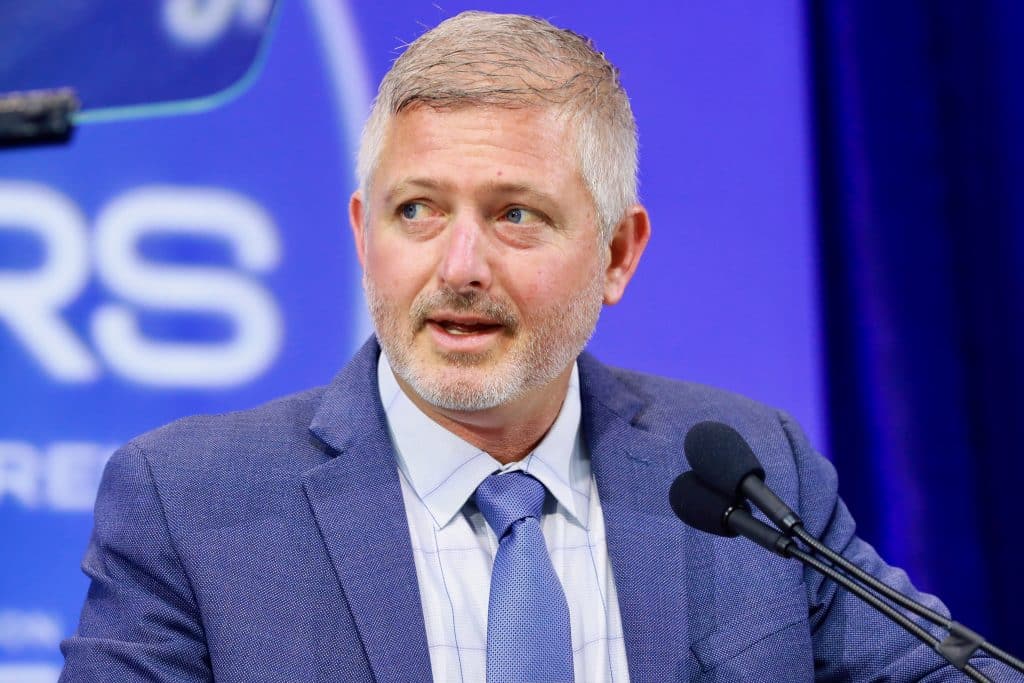
There are powerful anti-worker forces across both our nations that don’t just hate our movement, Coleman explained; they want to destroy us. They want to destroy us for what we work for, what we do, how we represent members and what we ask for. They want to destroy us because we ask for dignity, fairness and safety.
“We ask that we’re able to take care of our families and our loved ones, and they want to destroy us,” Coleman said, in disbelief.
That’s why these conferences are so crucial, he added. Because we need everyone together as we work to protect and secure the future for our members.
“I want to thank all of you for being in this fight,” he told officers. “That’s what we’re here for. It’s not easy, I know it — it’s exhausting. But you do it, every single day. And members count on you to do that, every single day. And it is the fight worth fighting.”
And with that, the 2025 SMART Leadership Conference came to a close.
